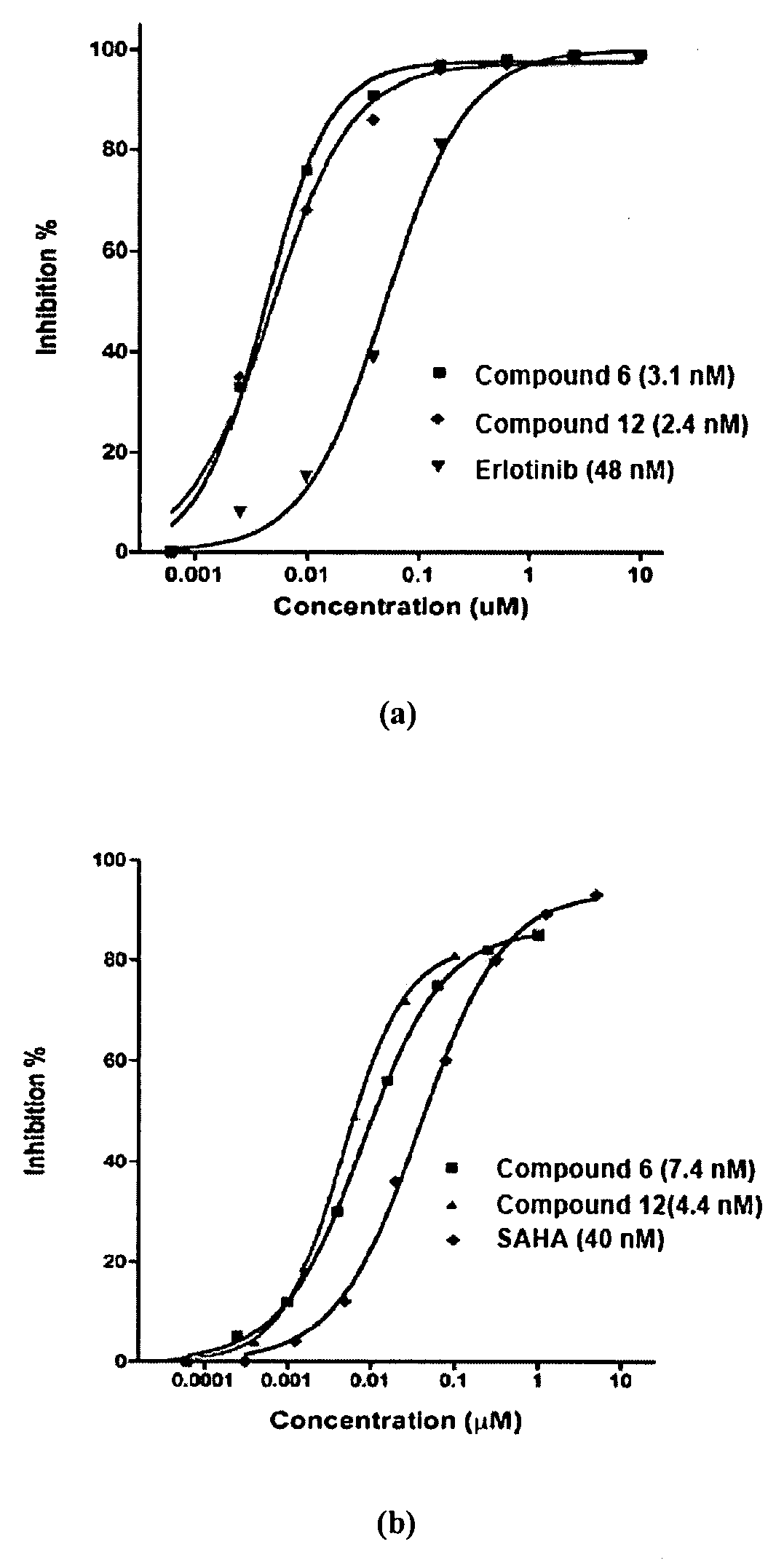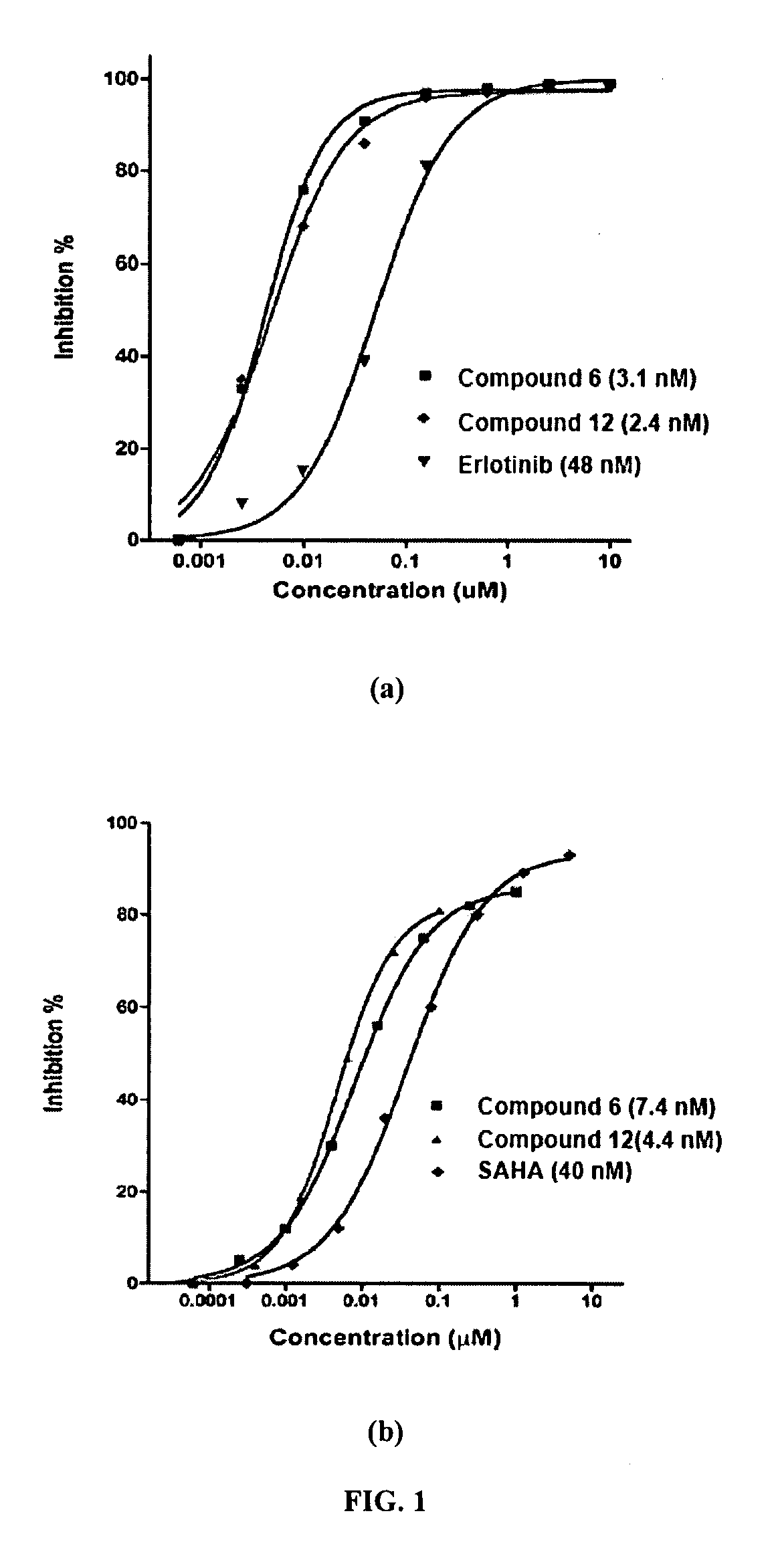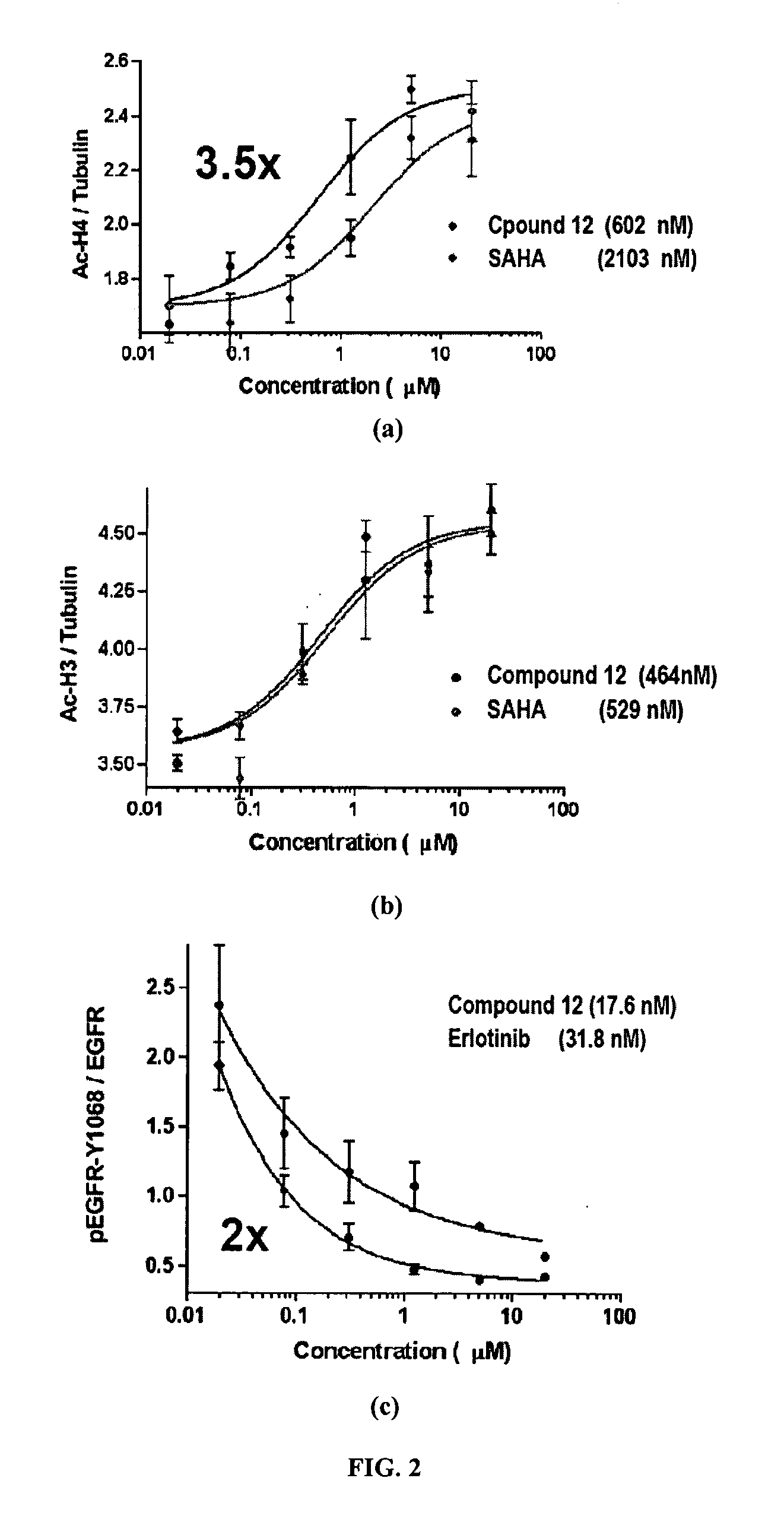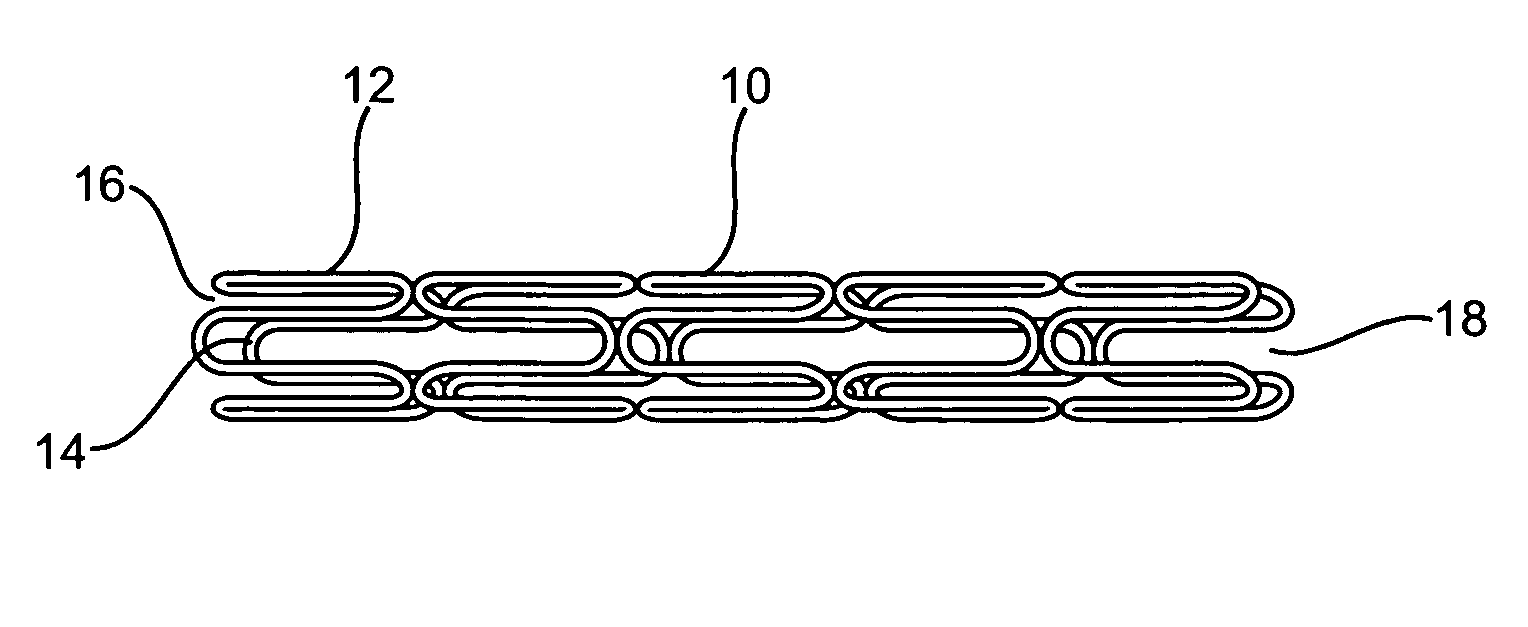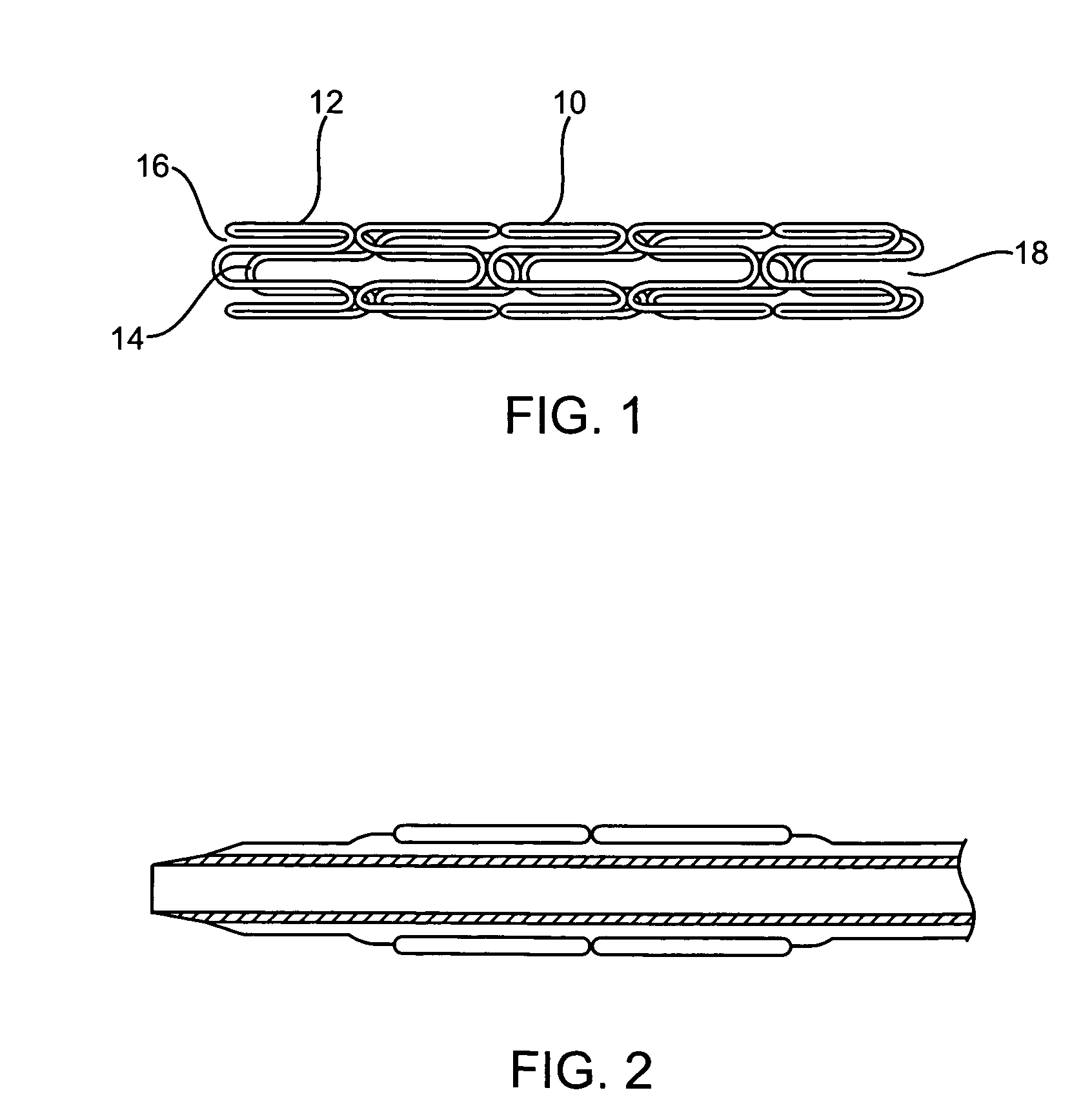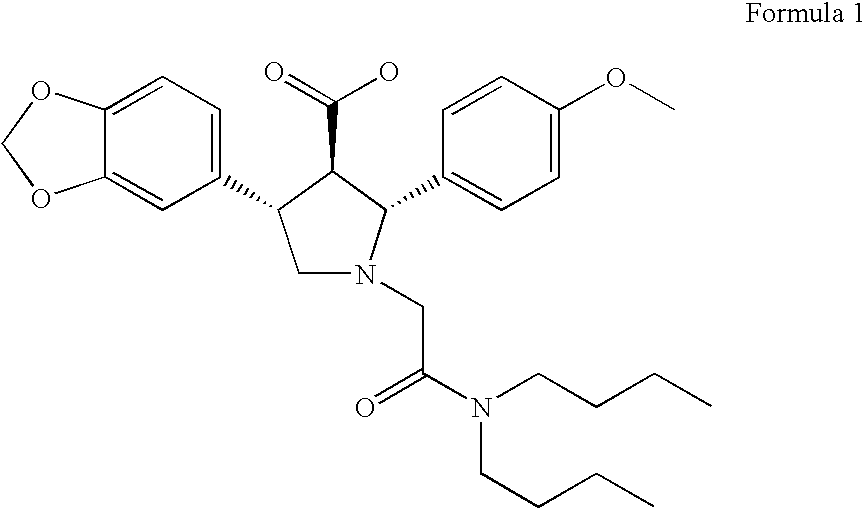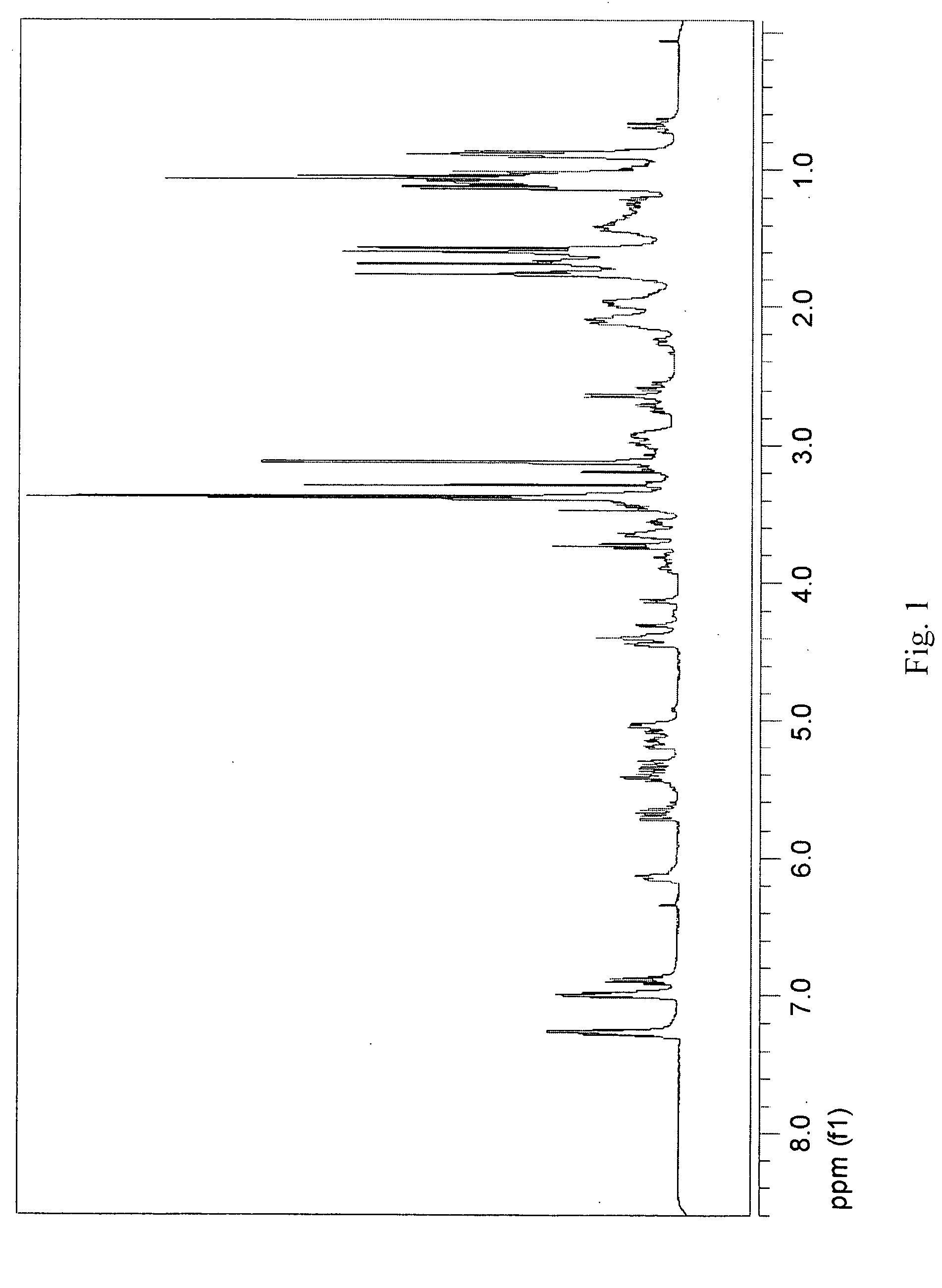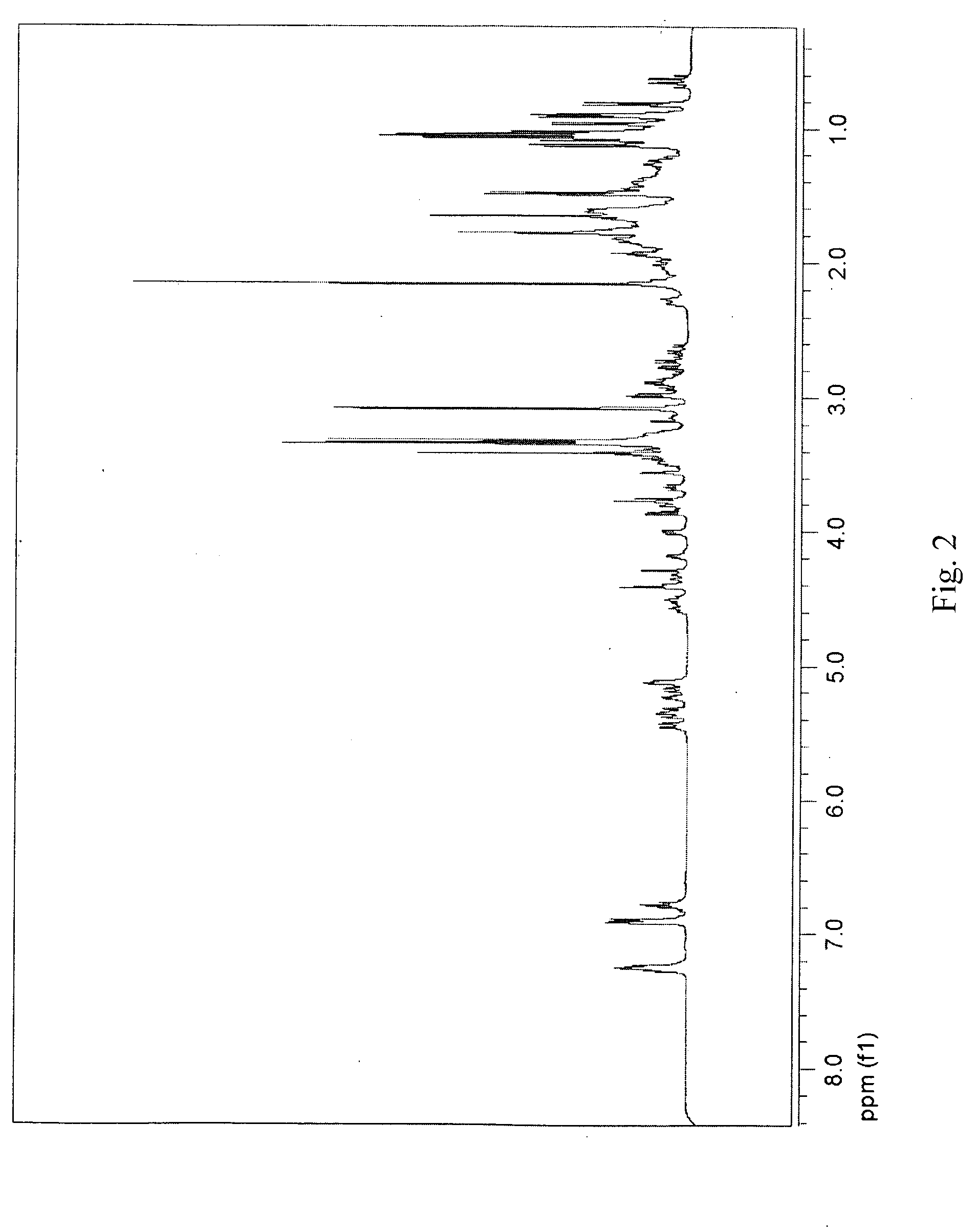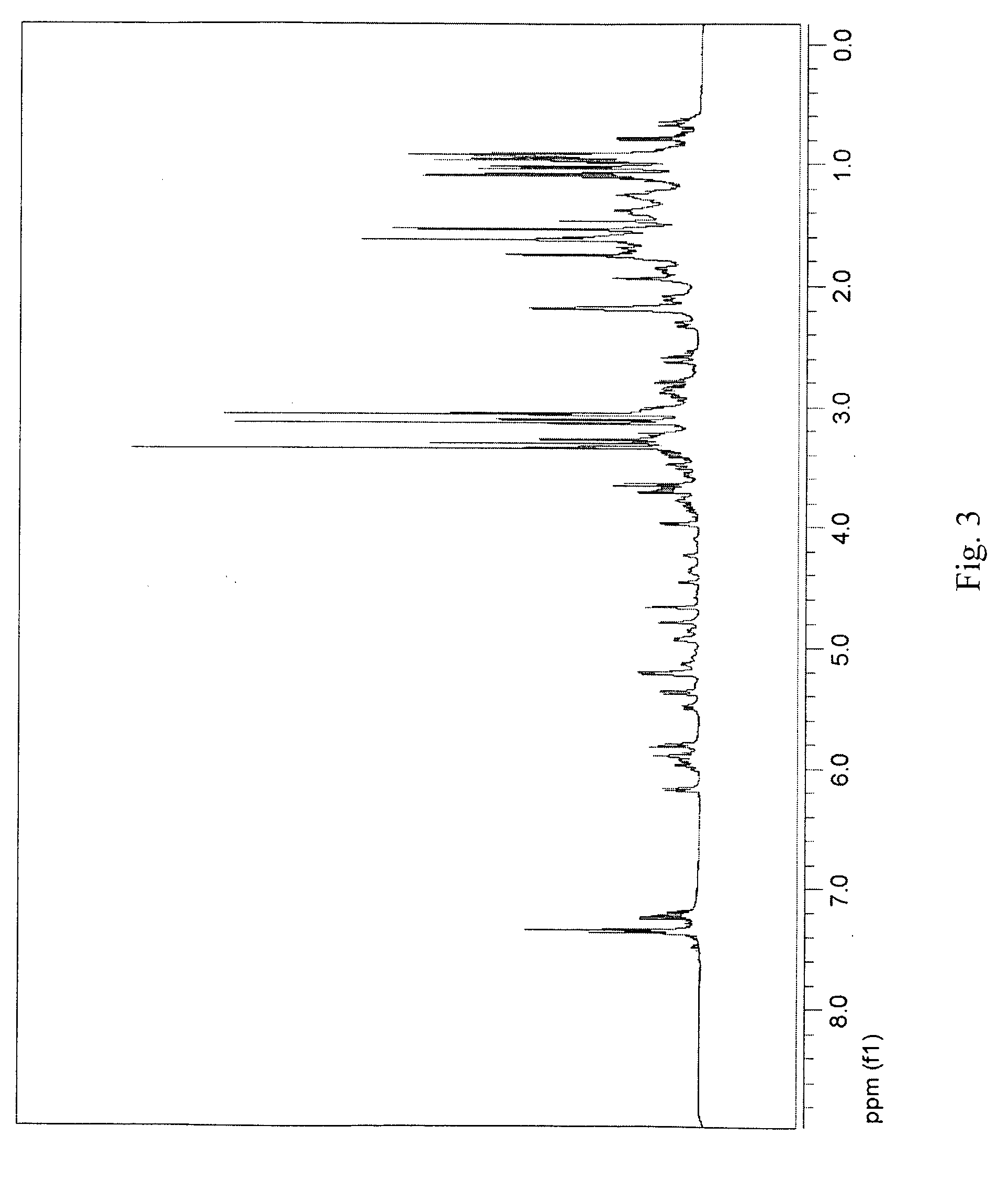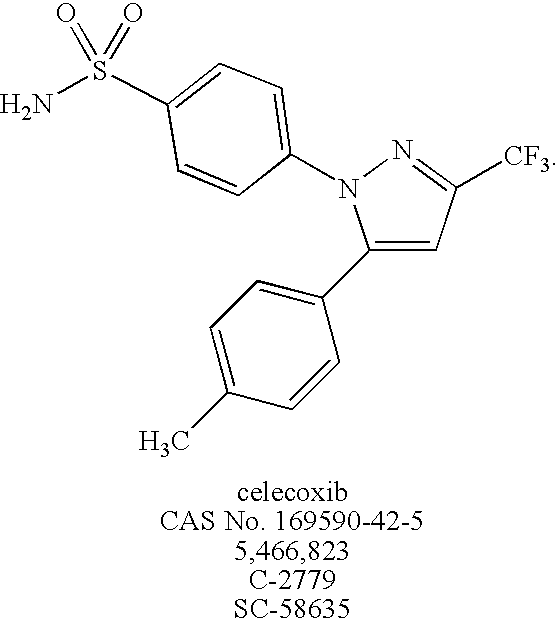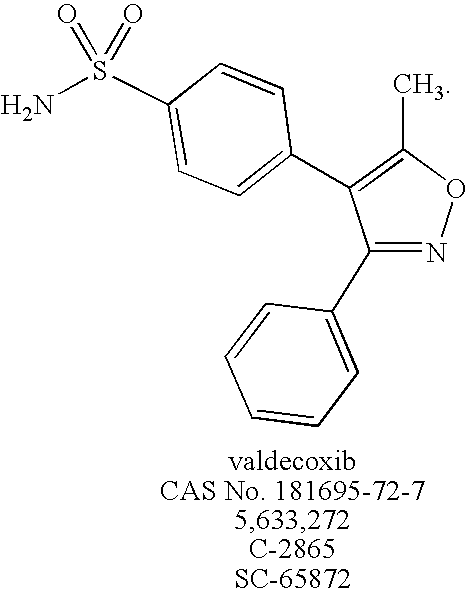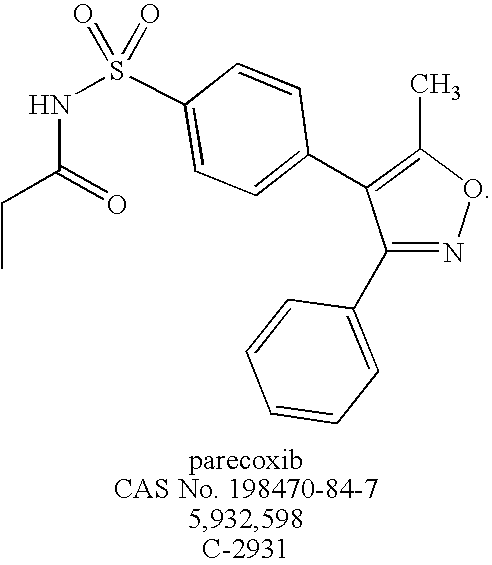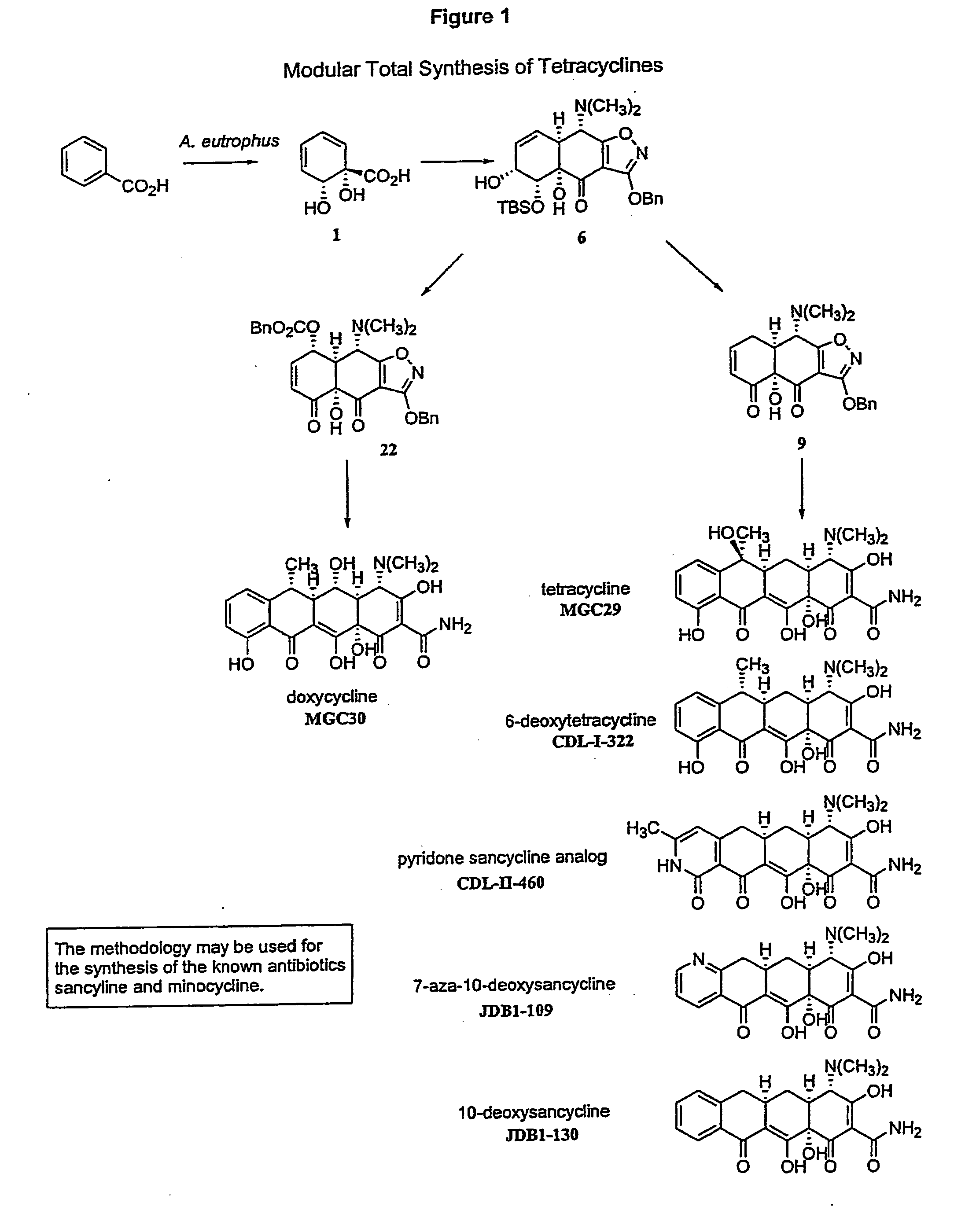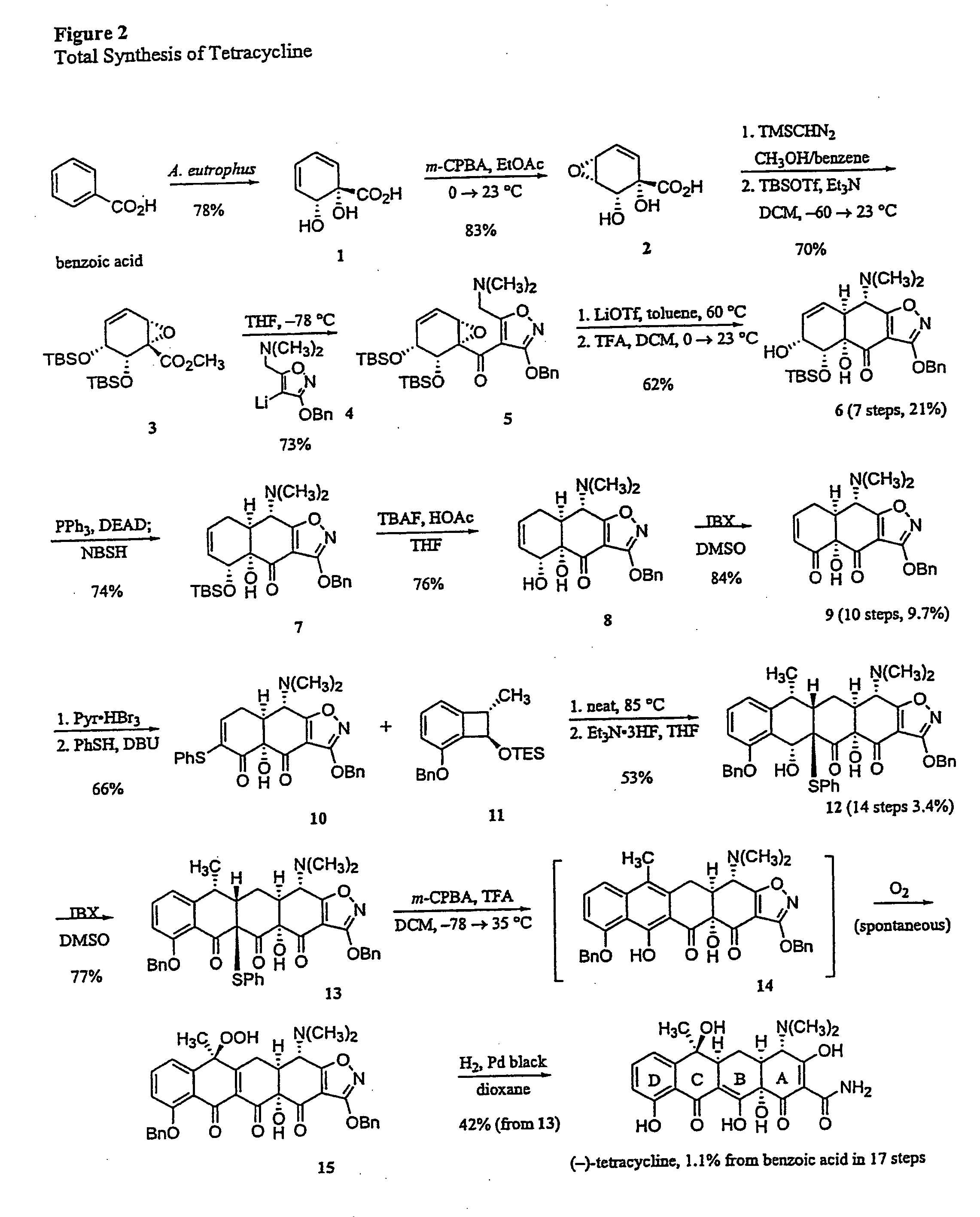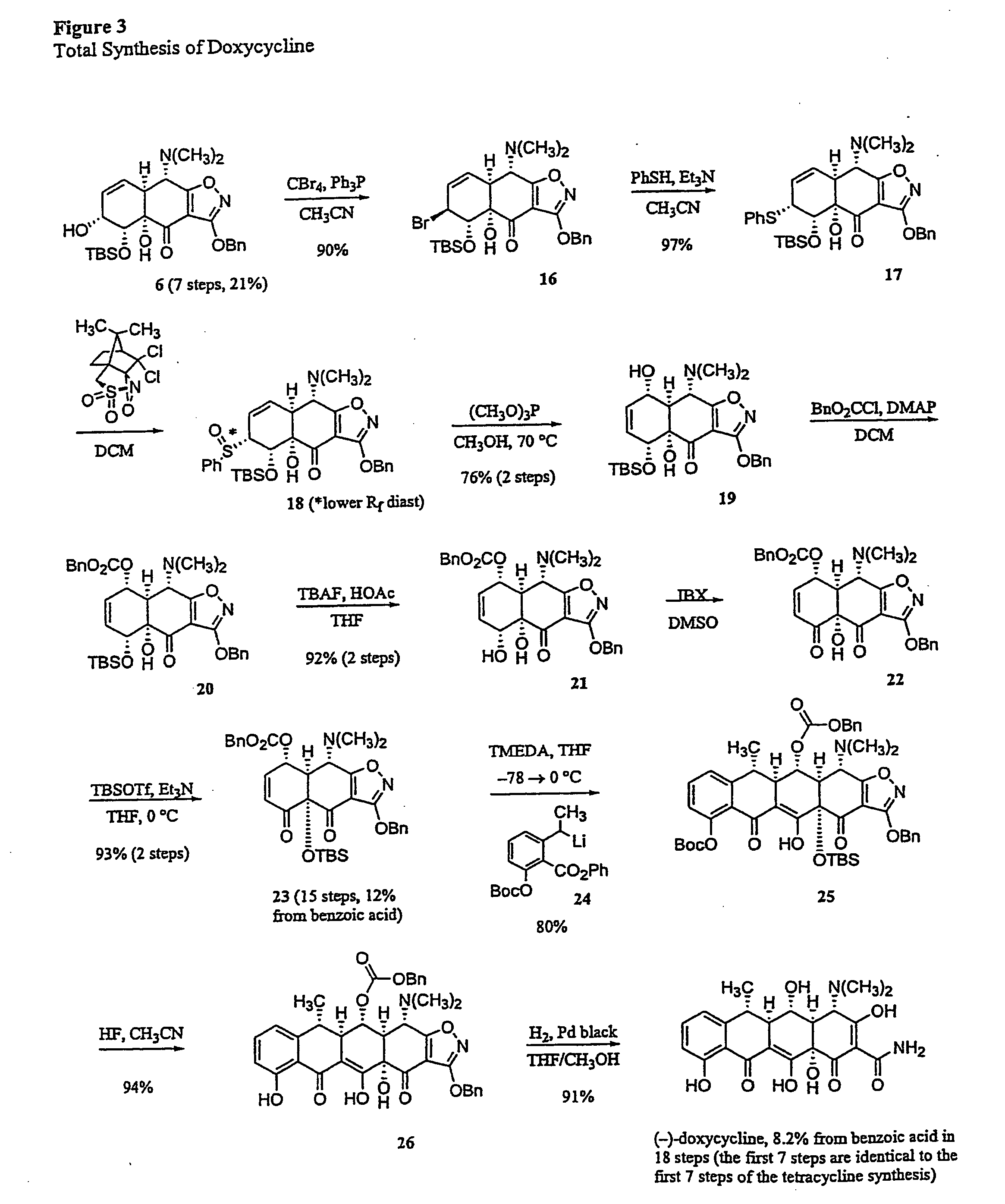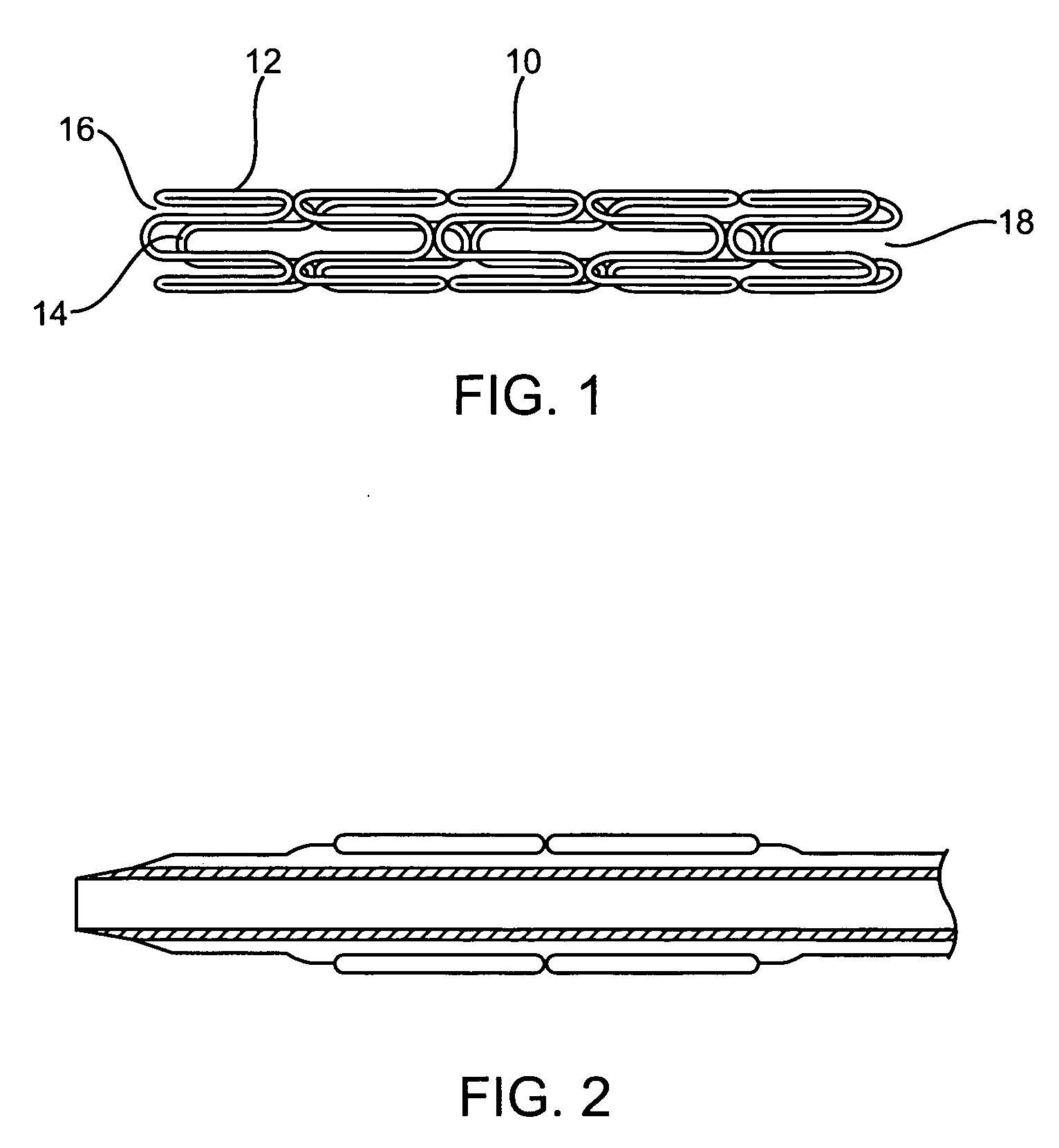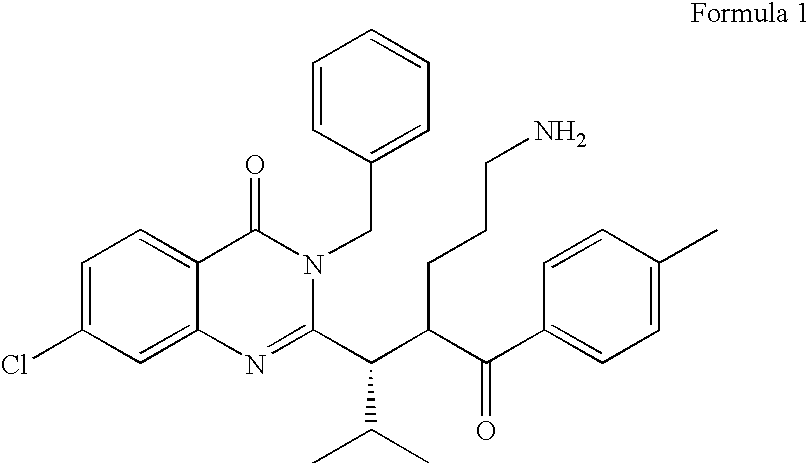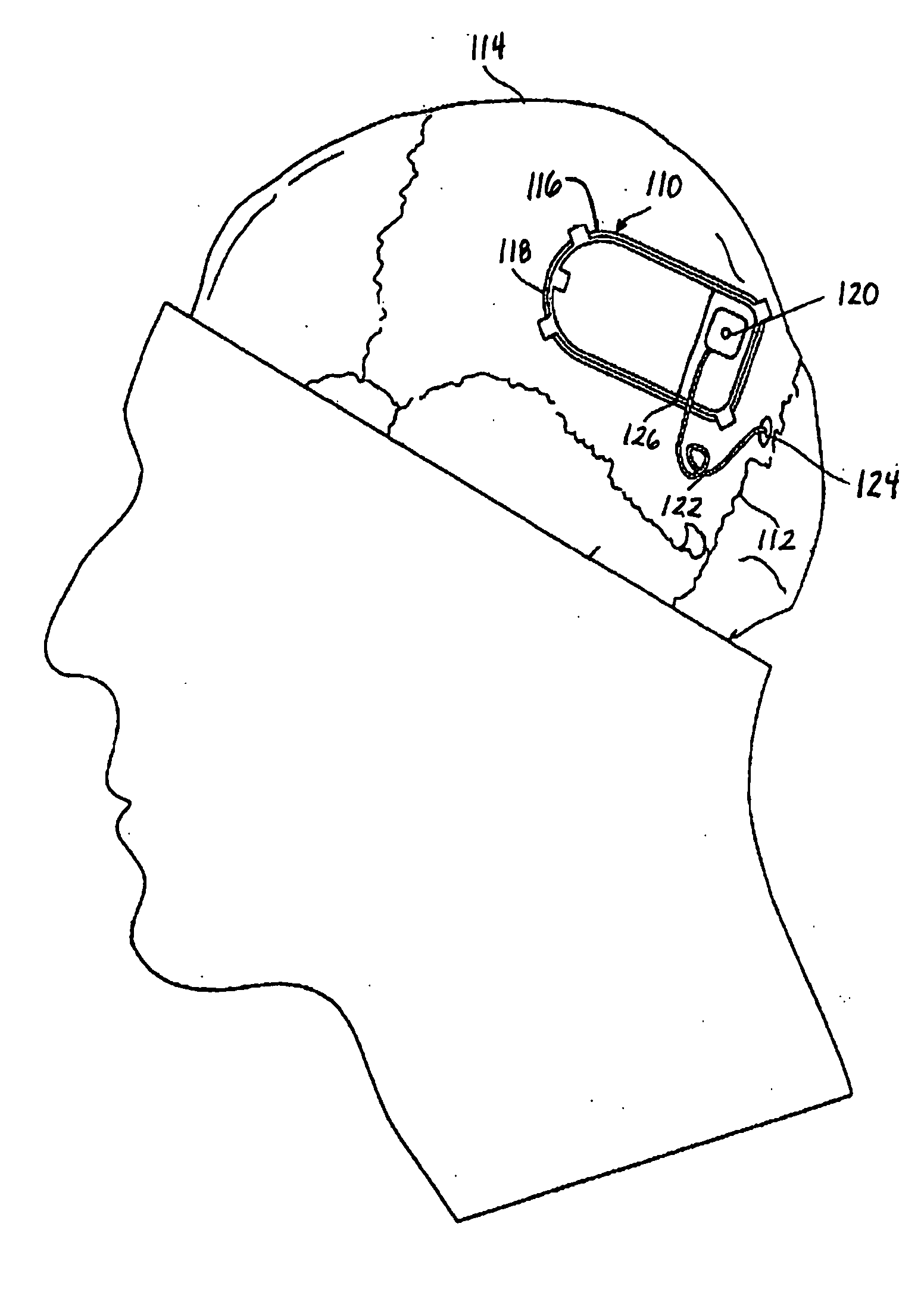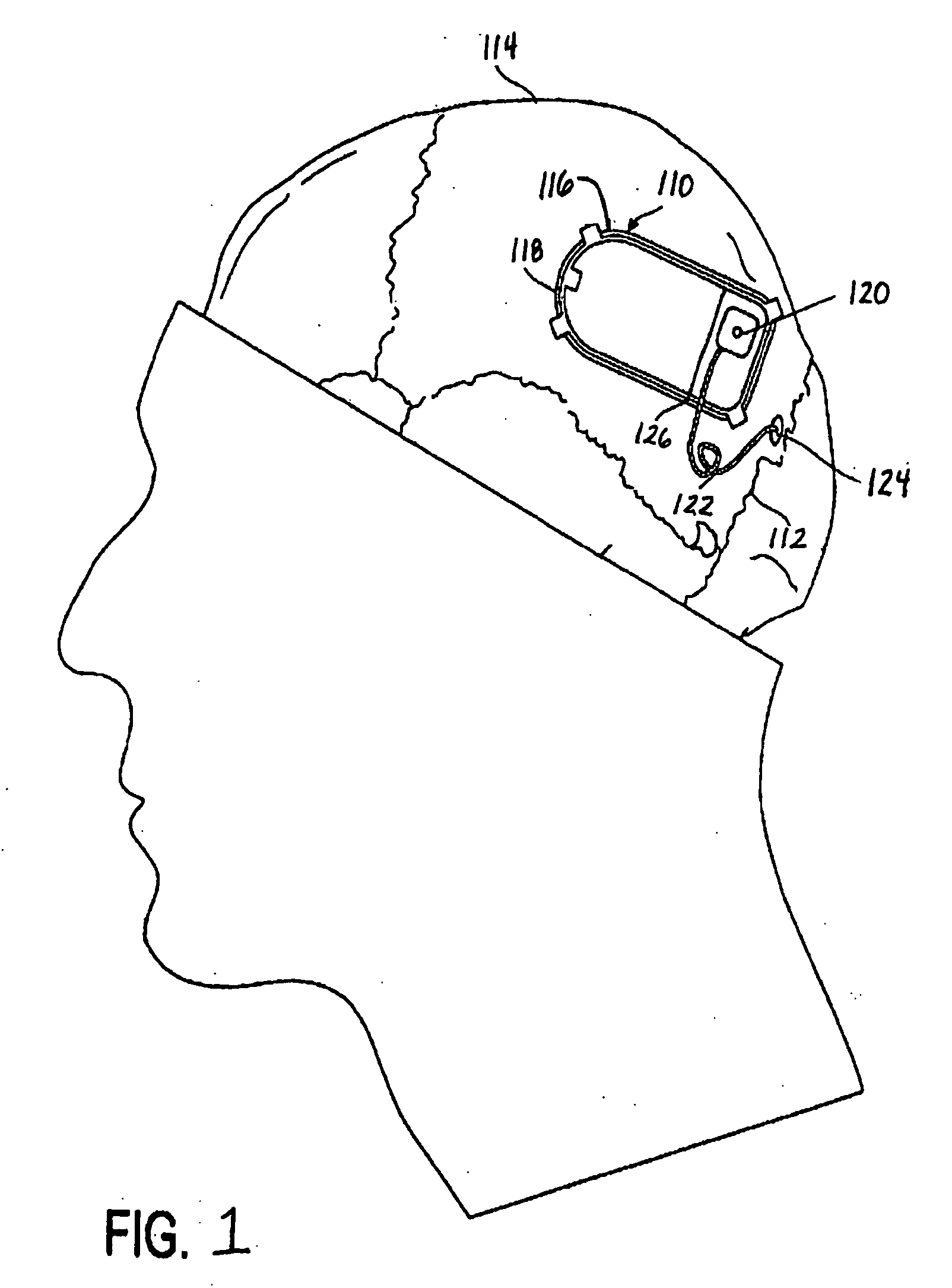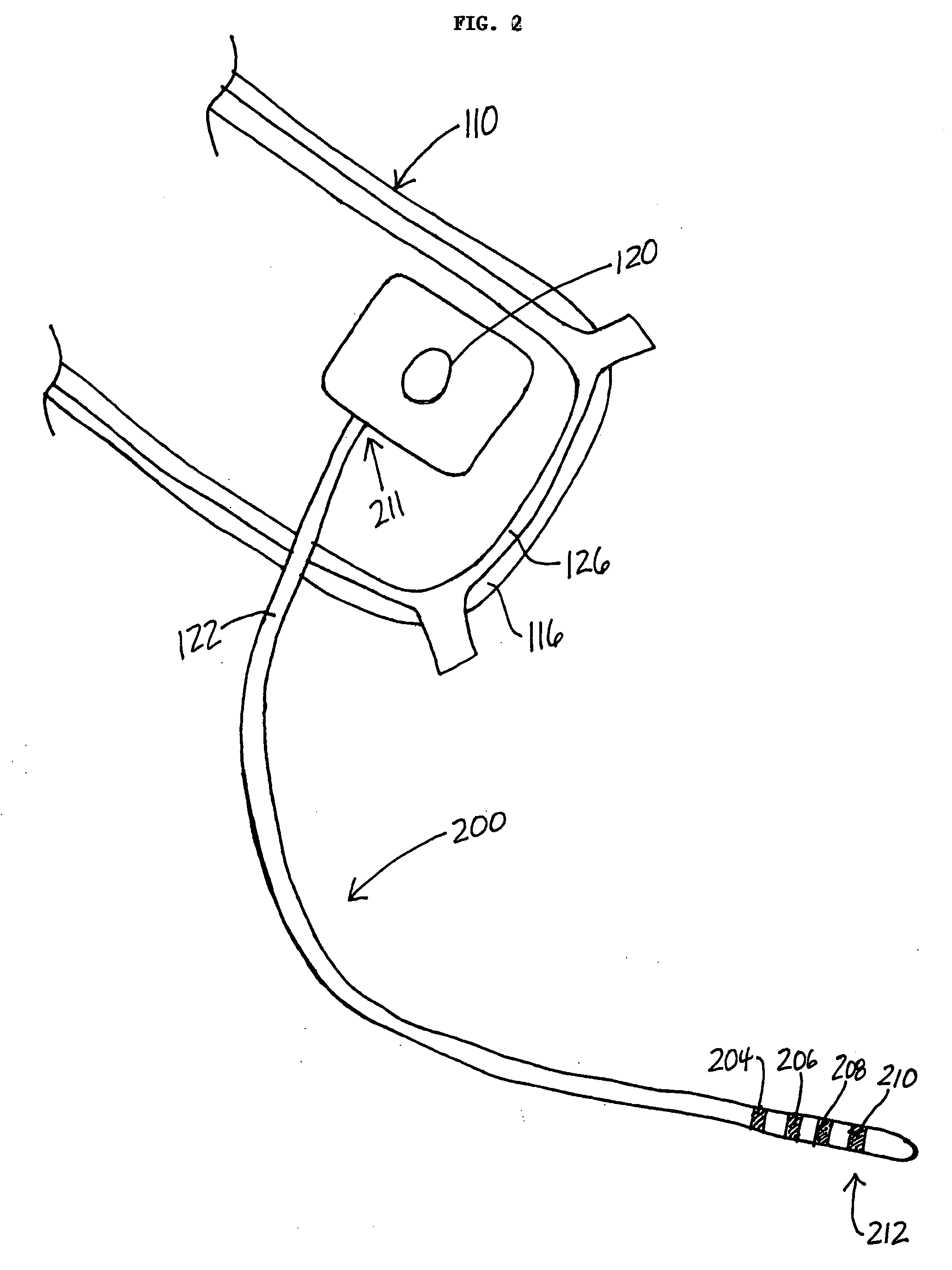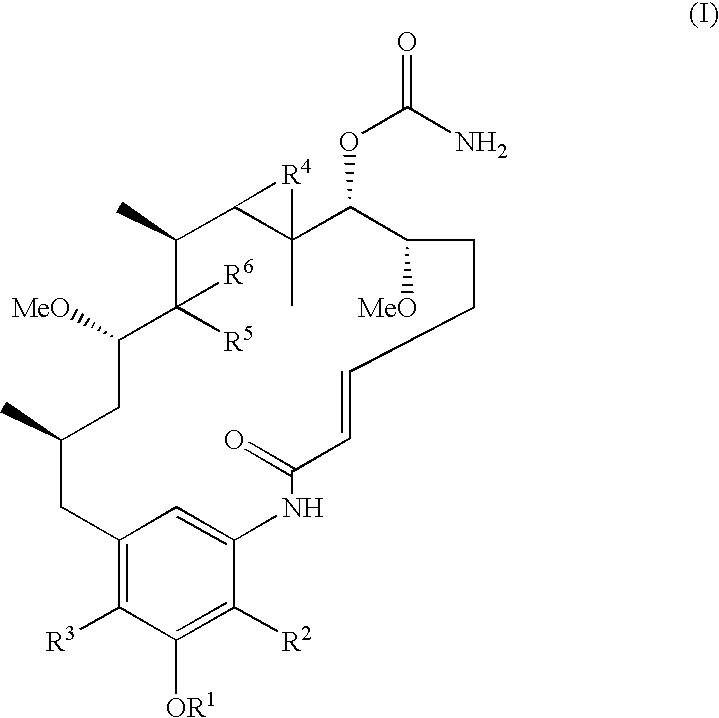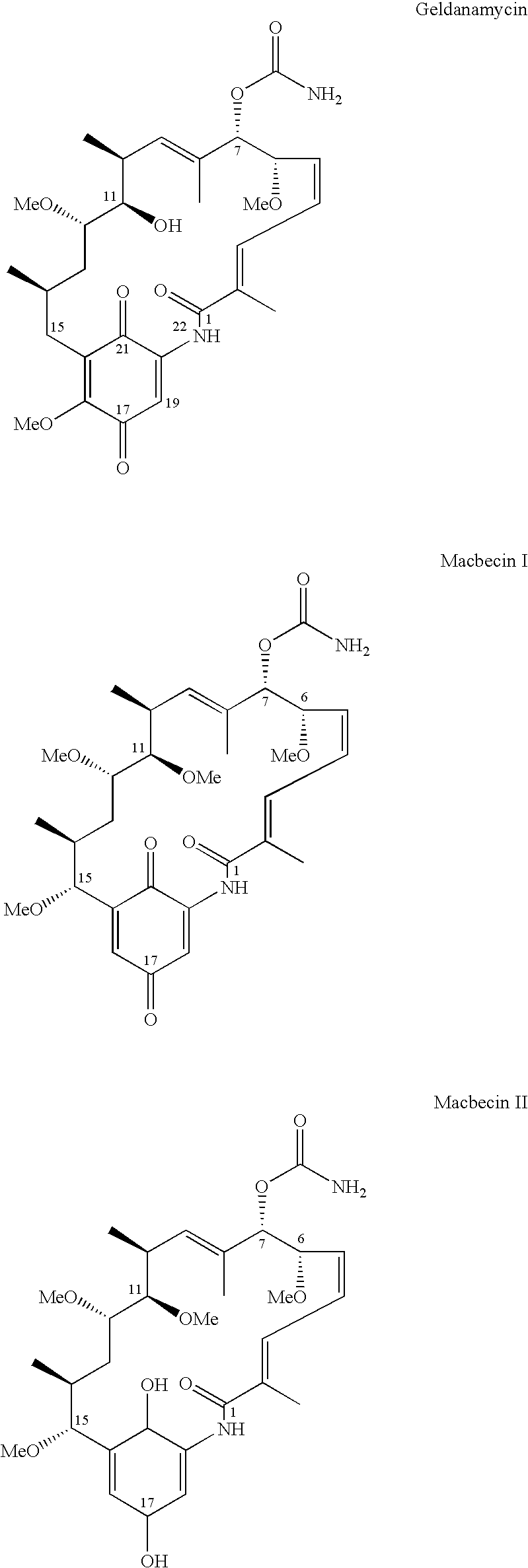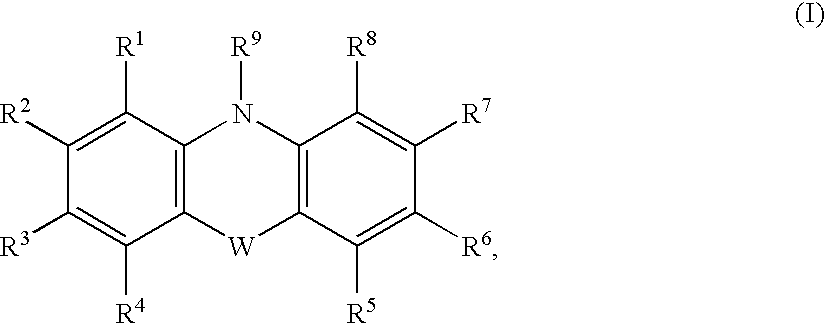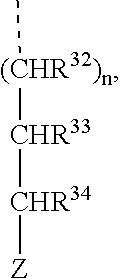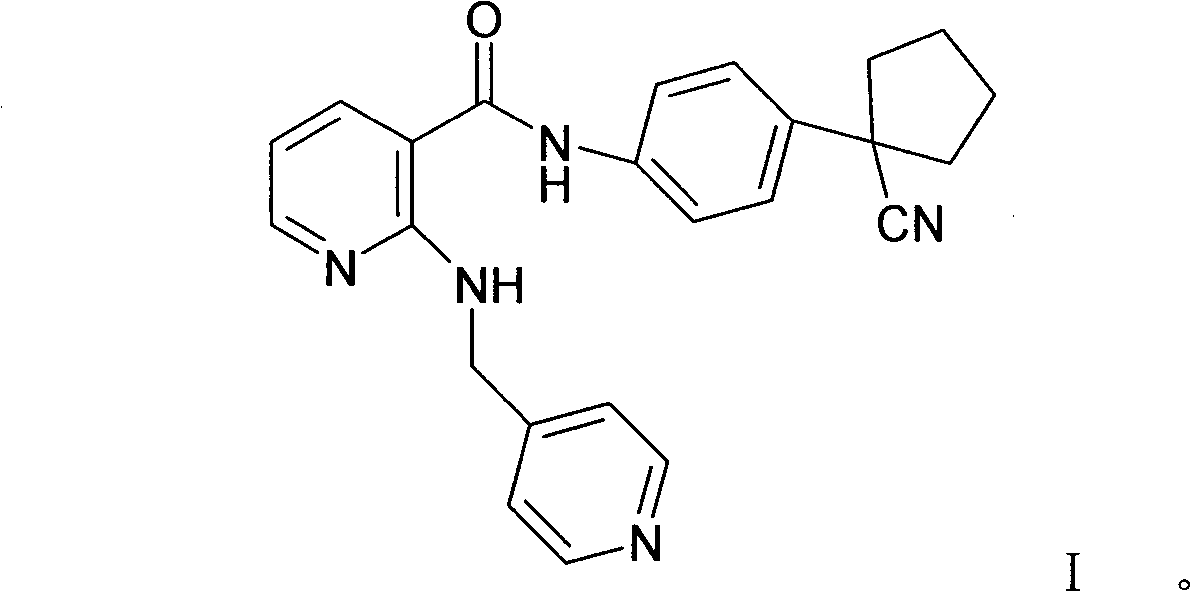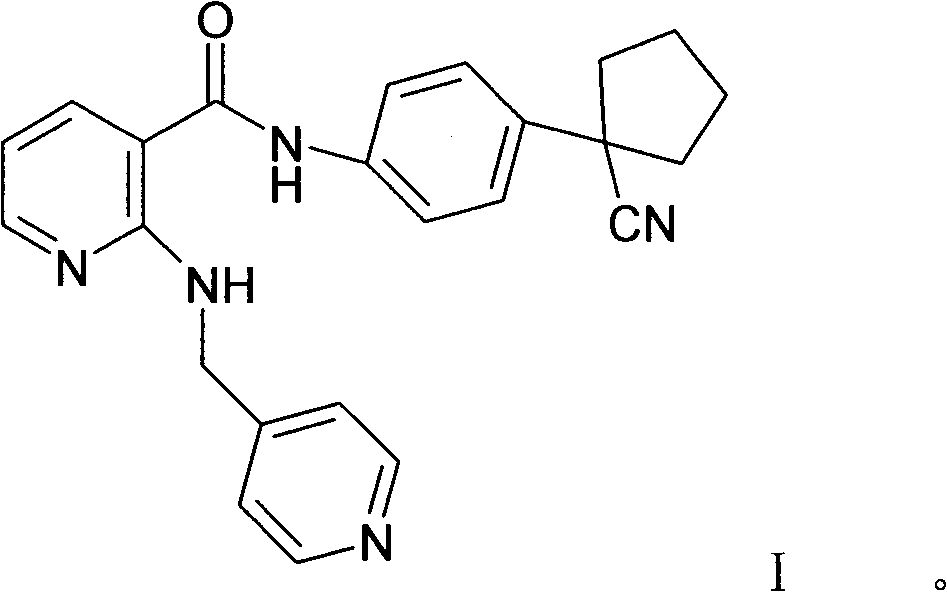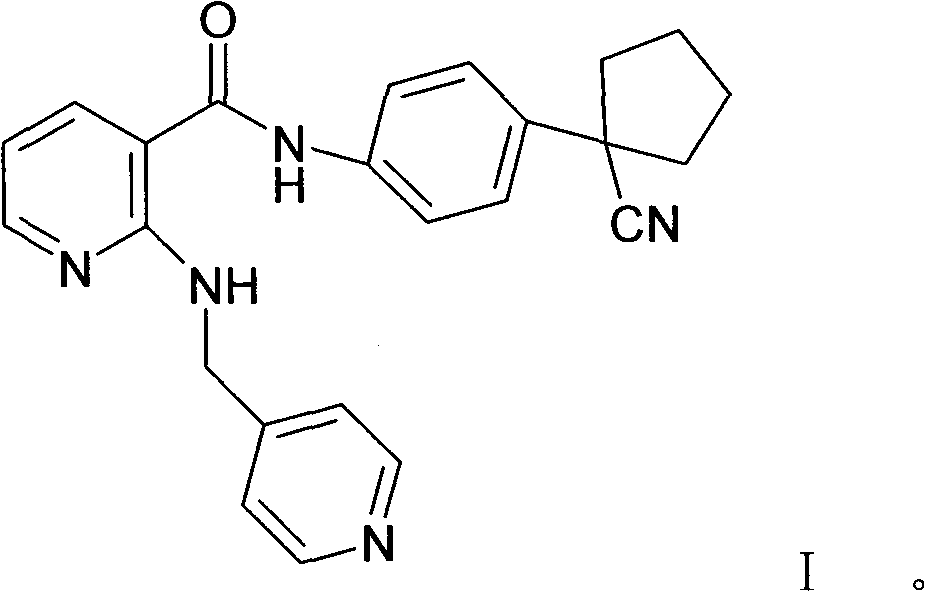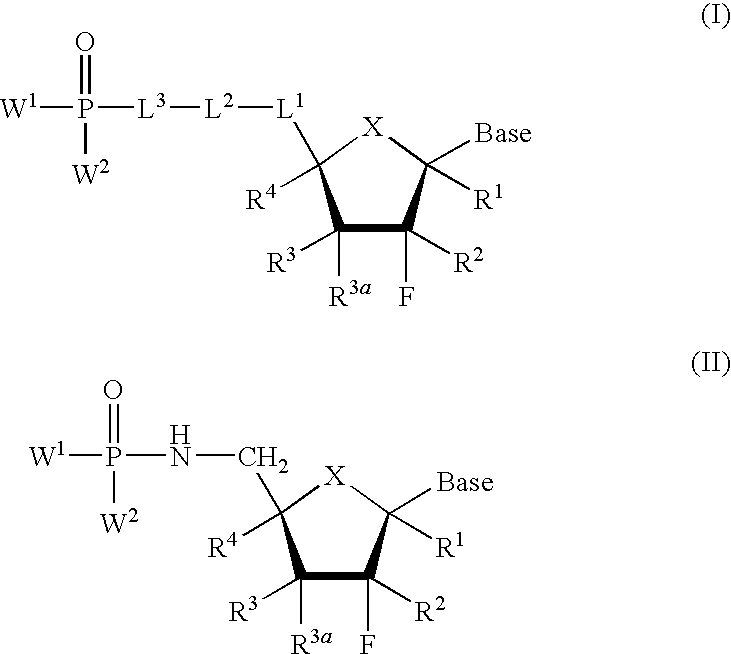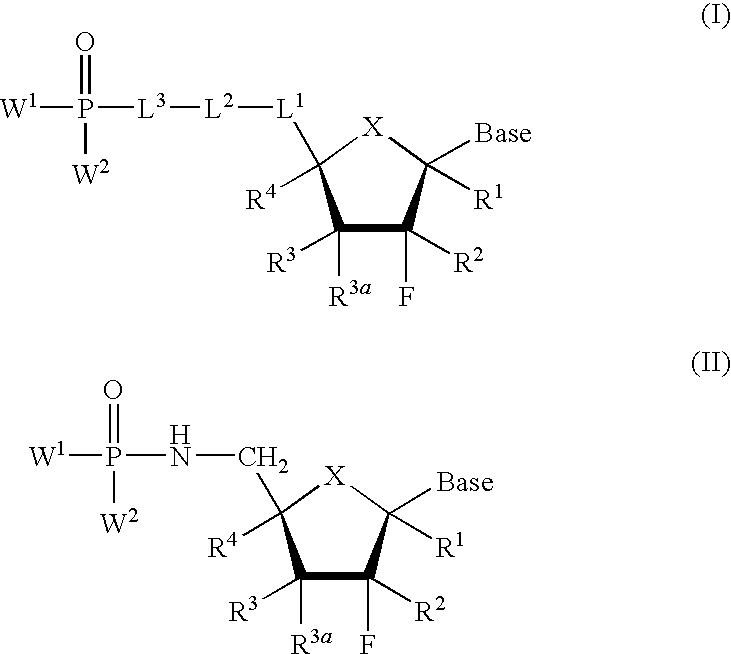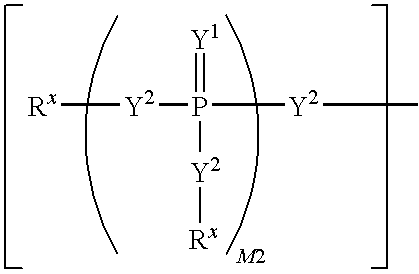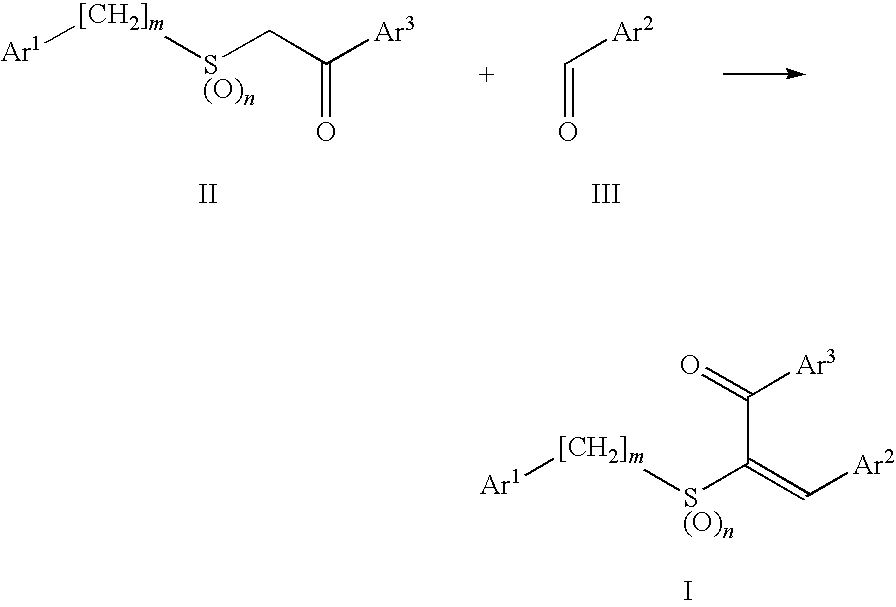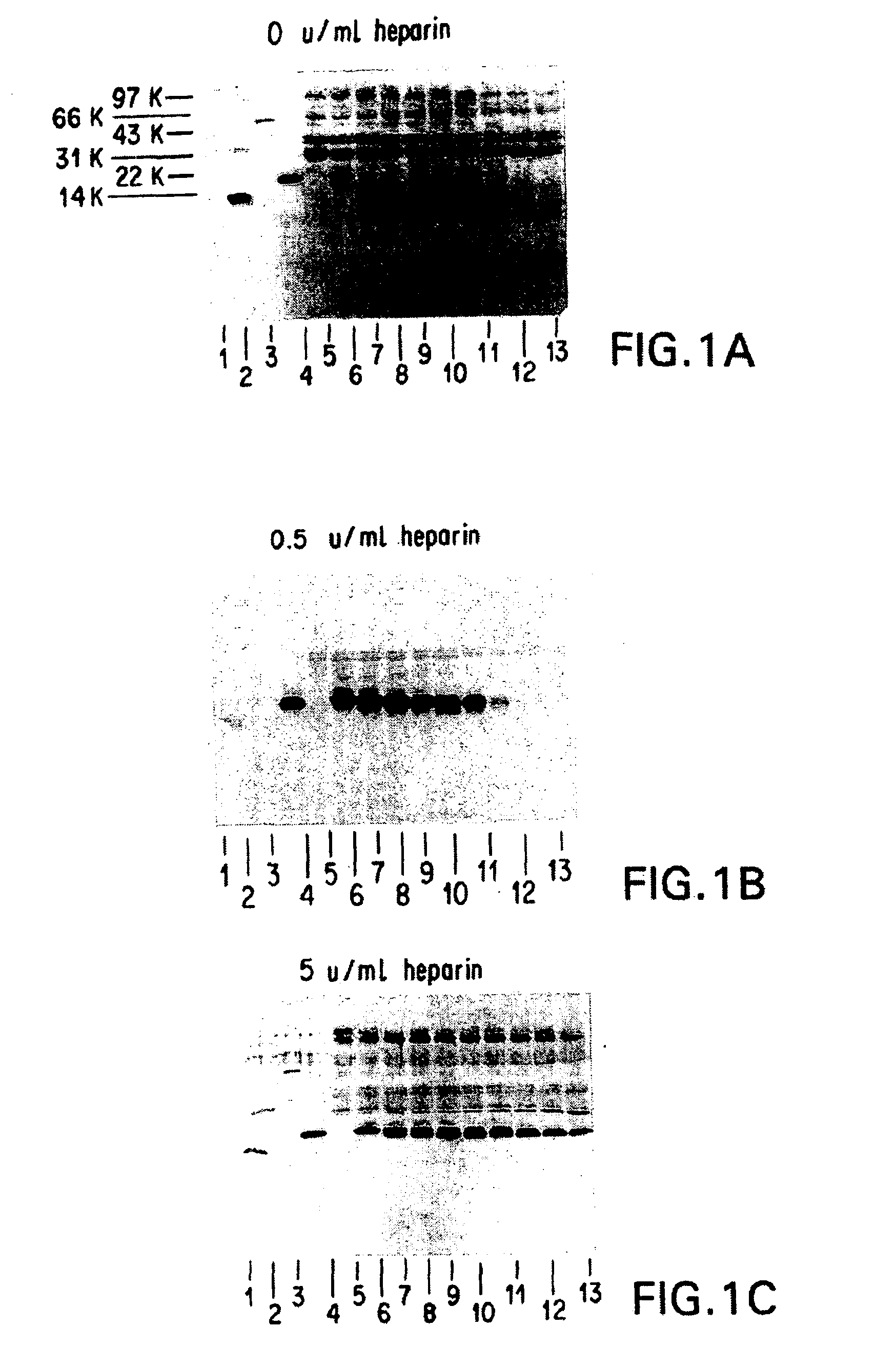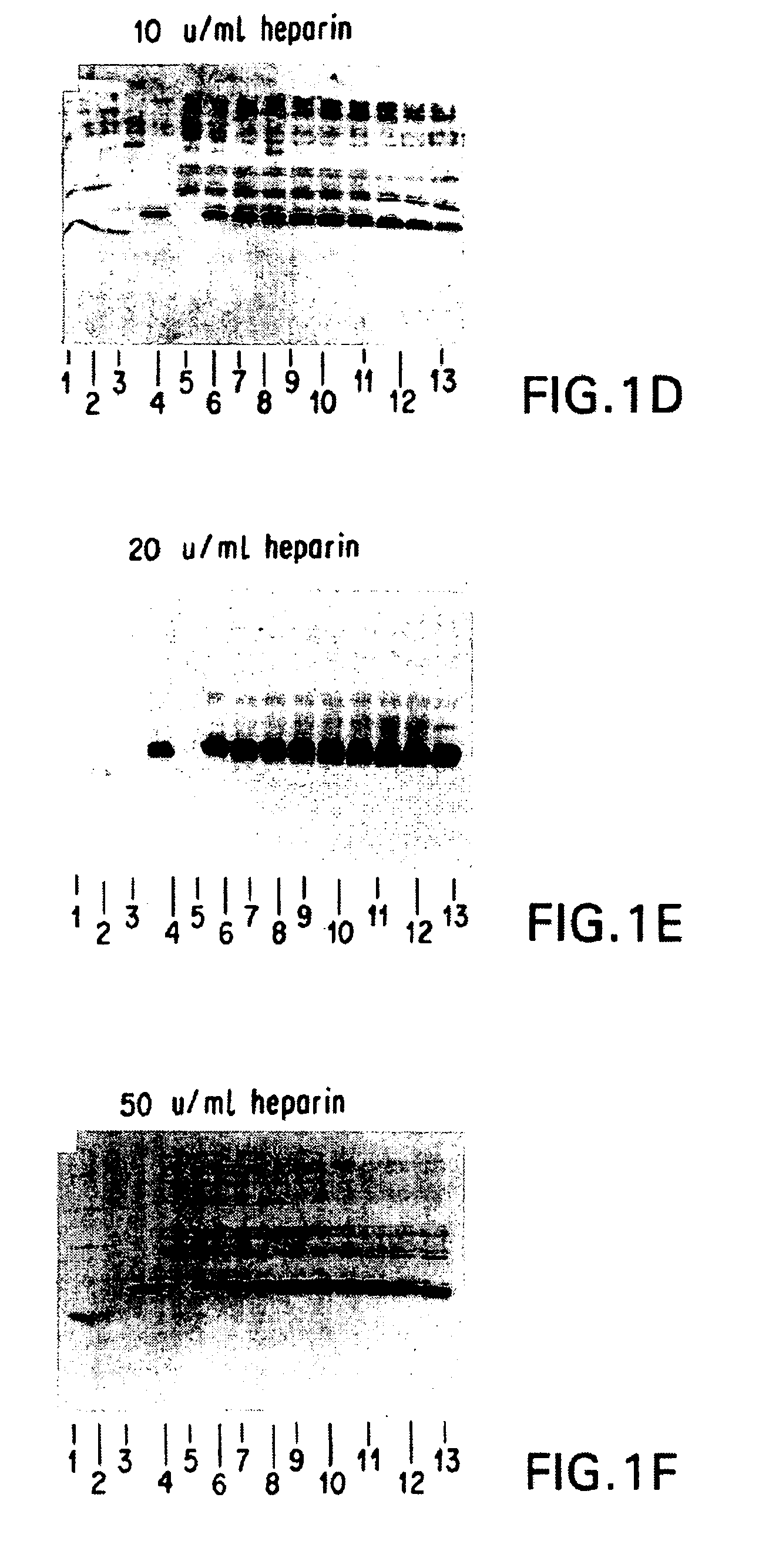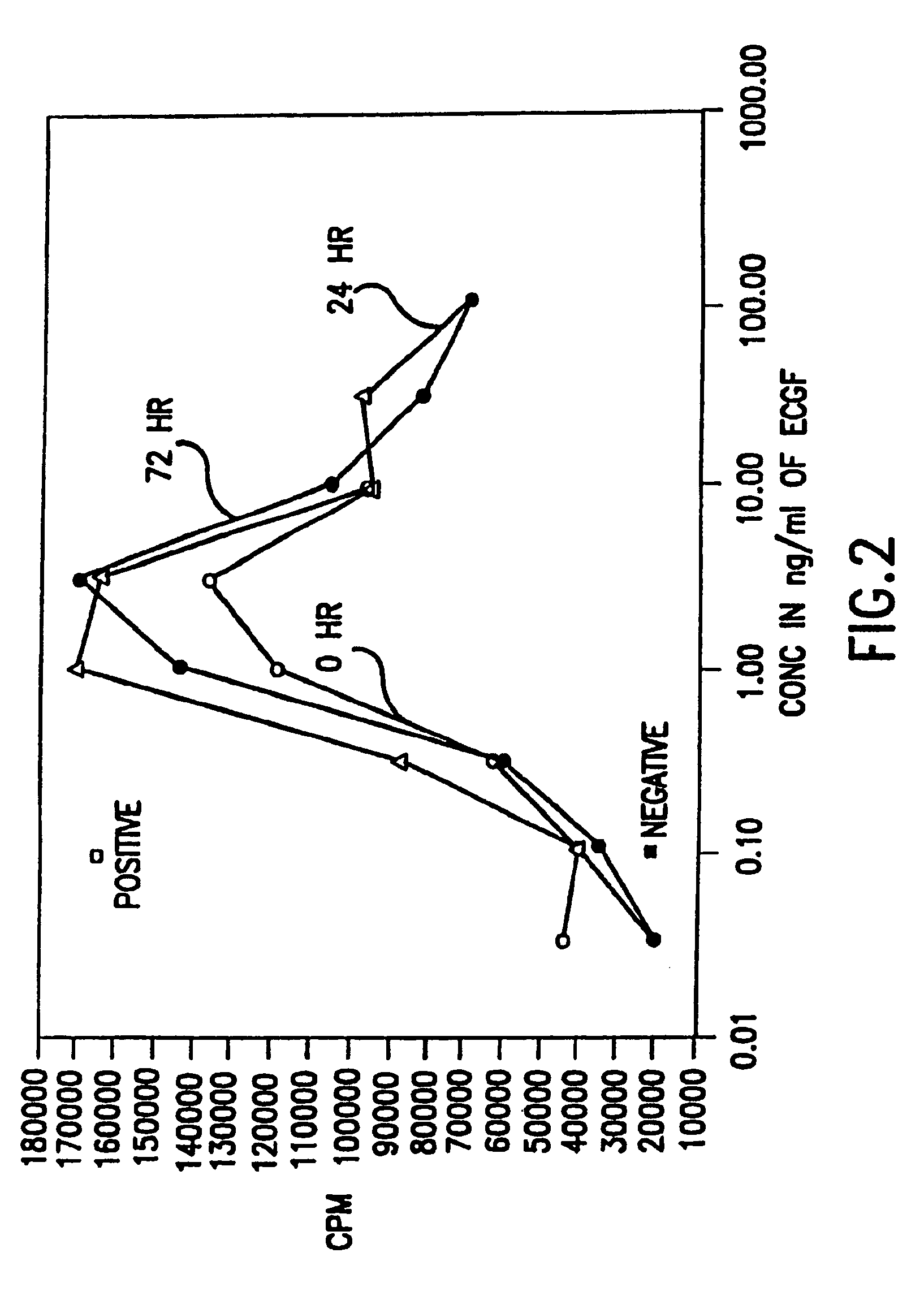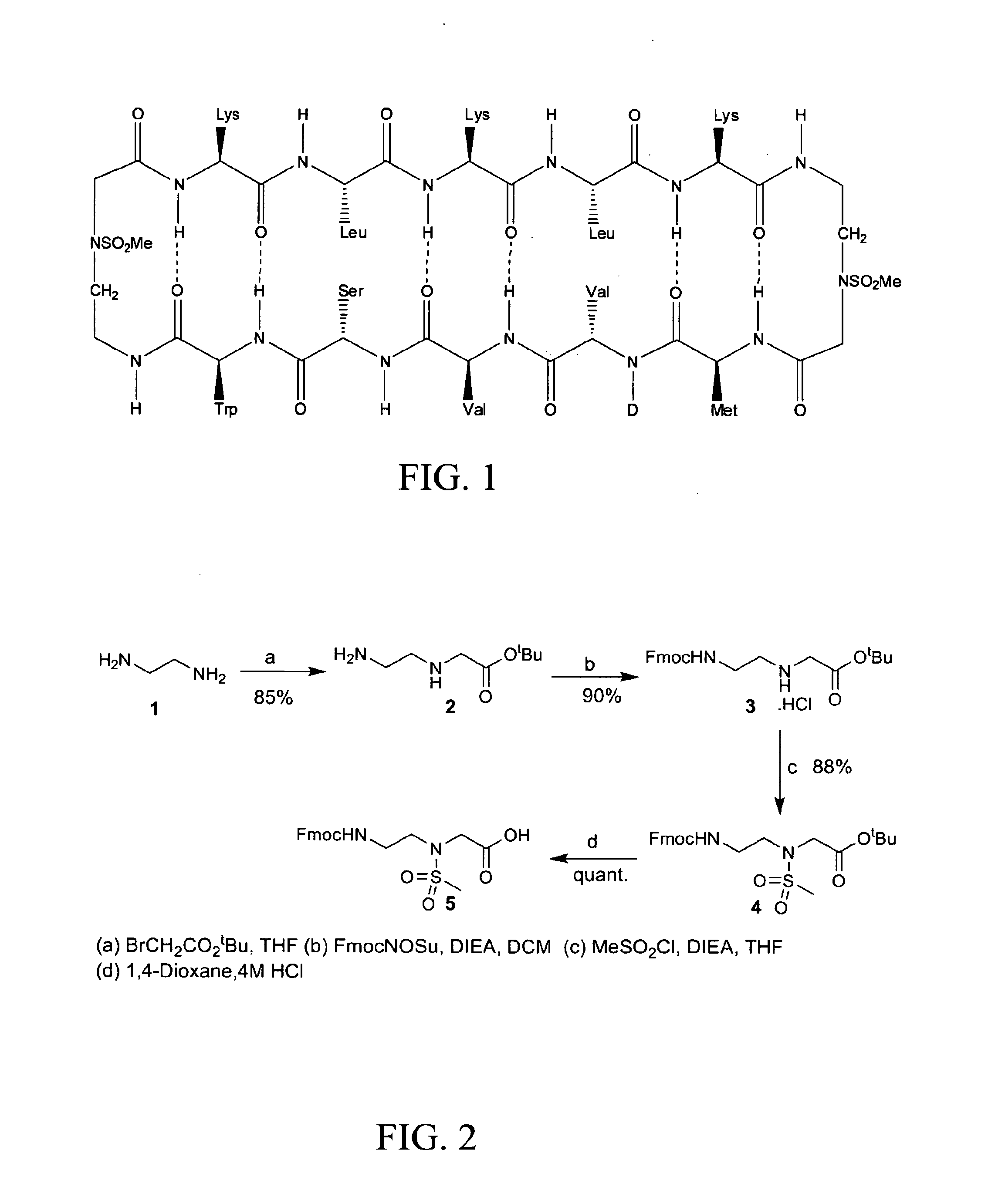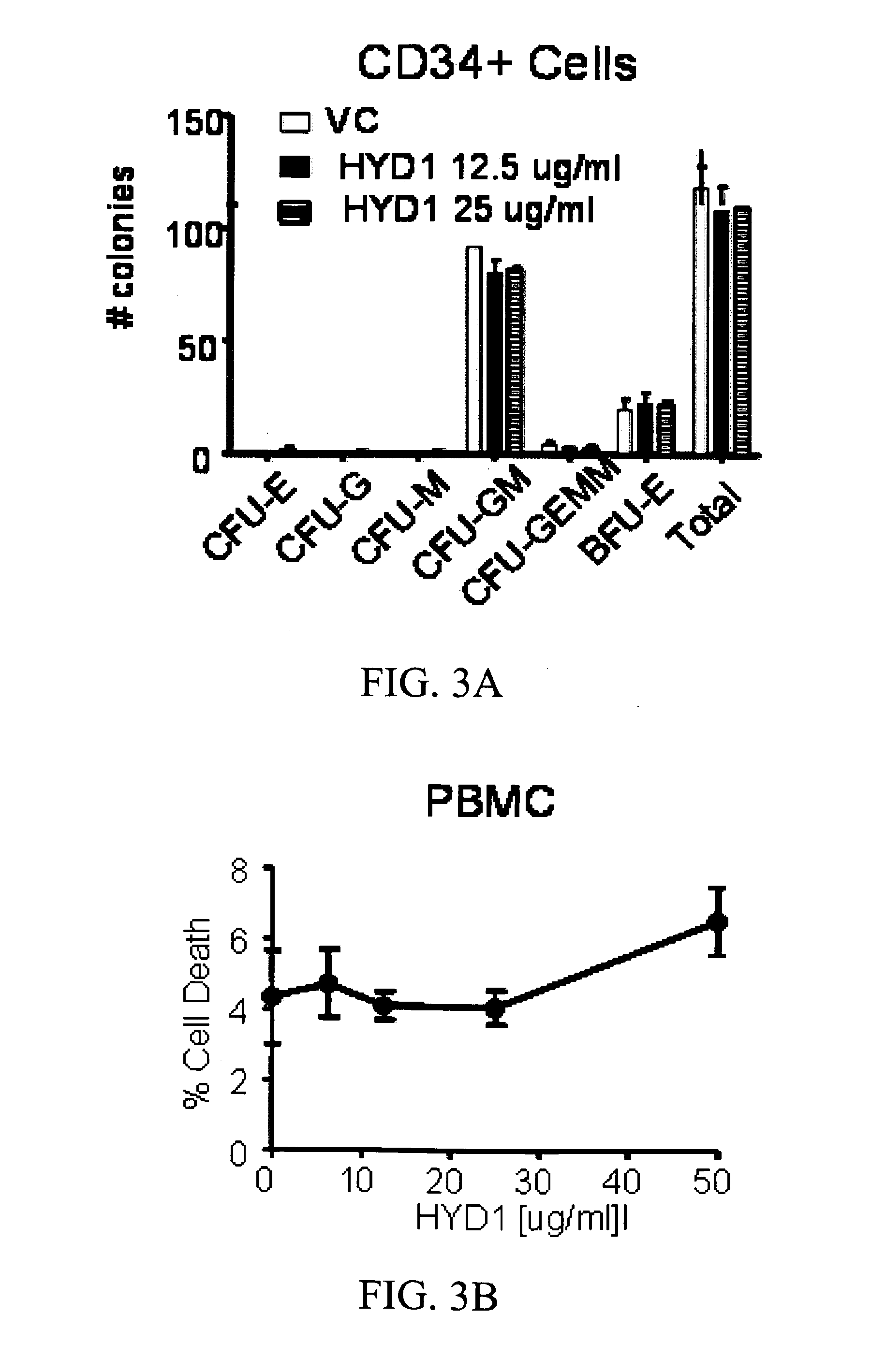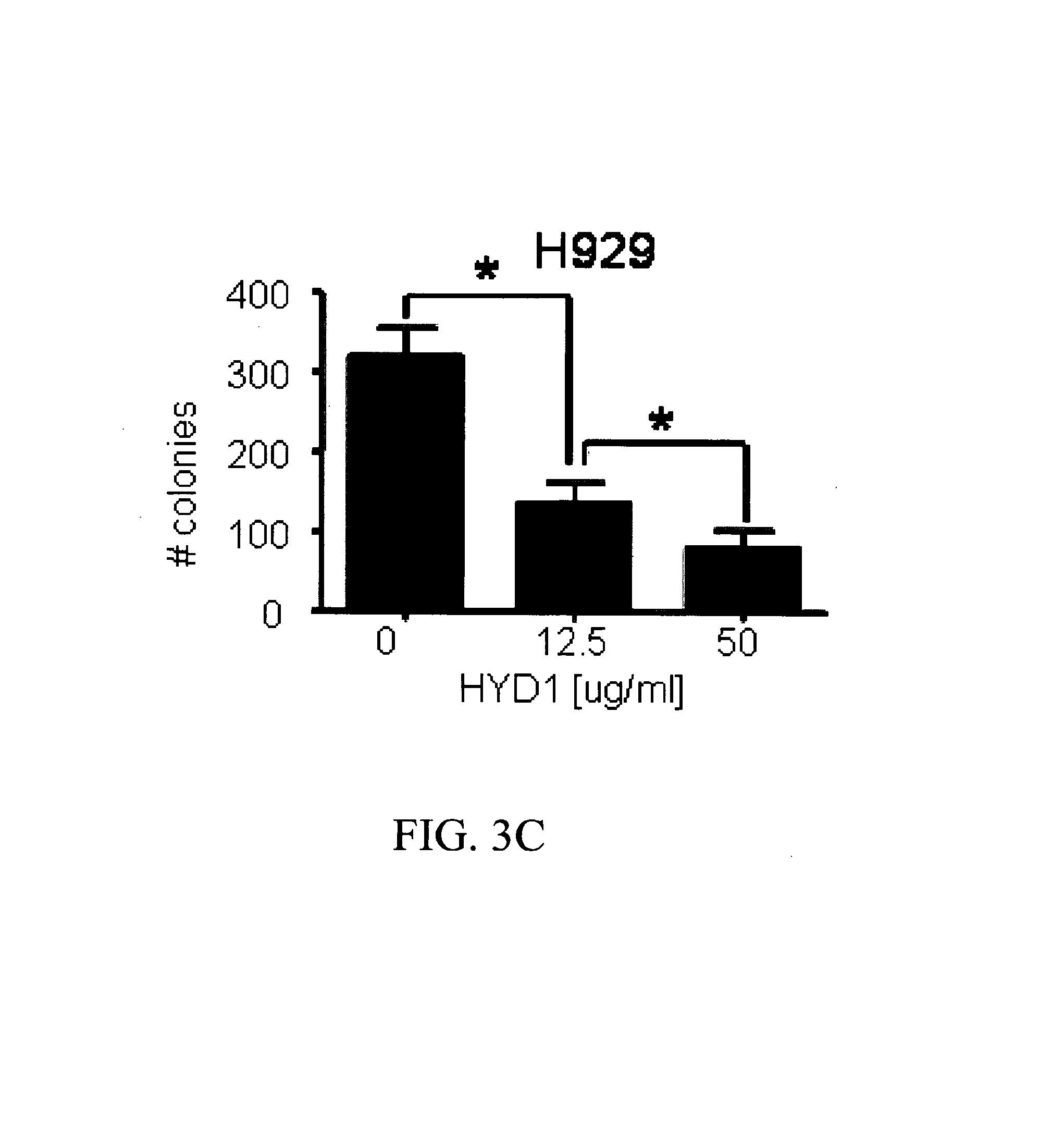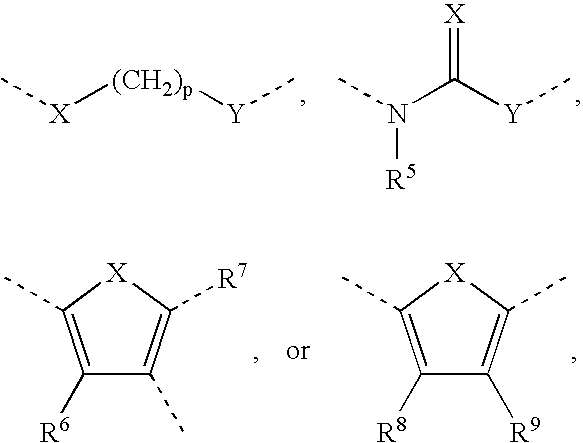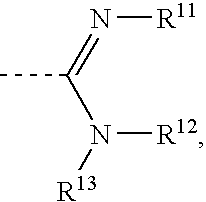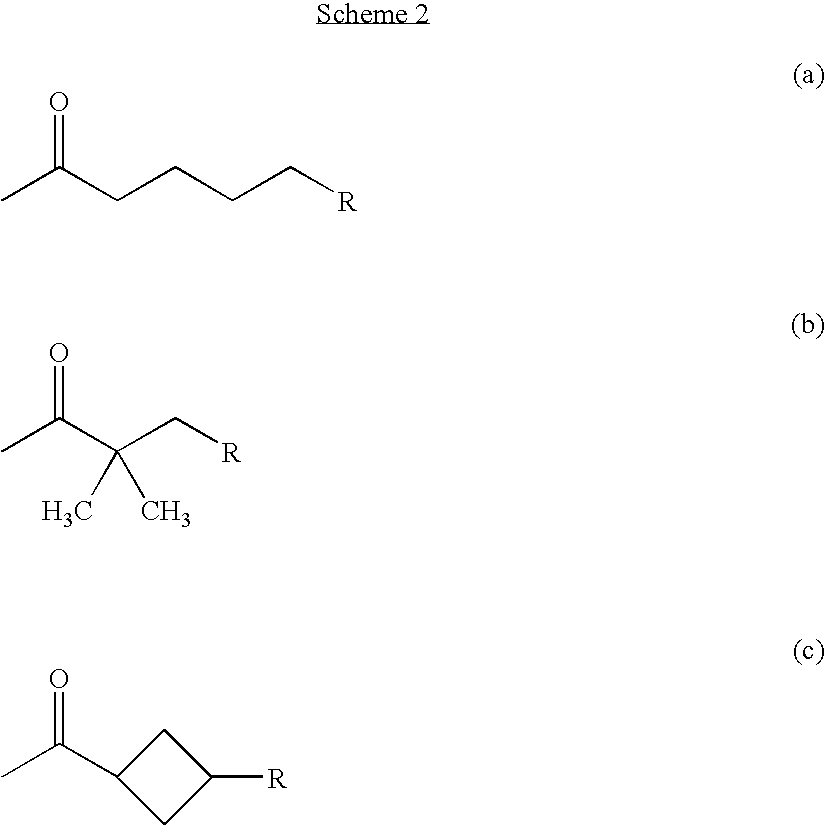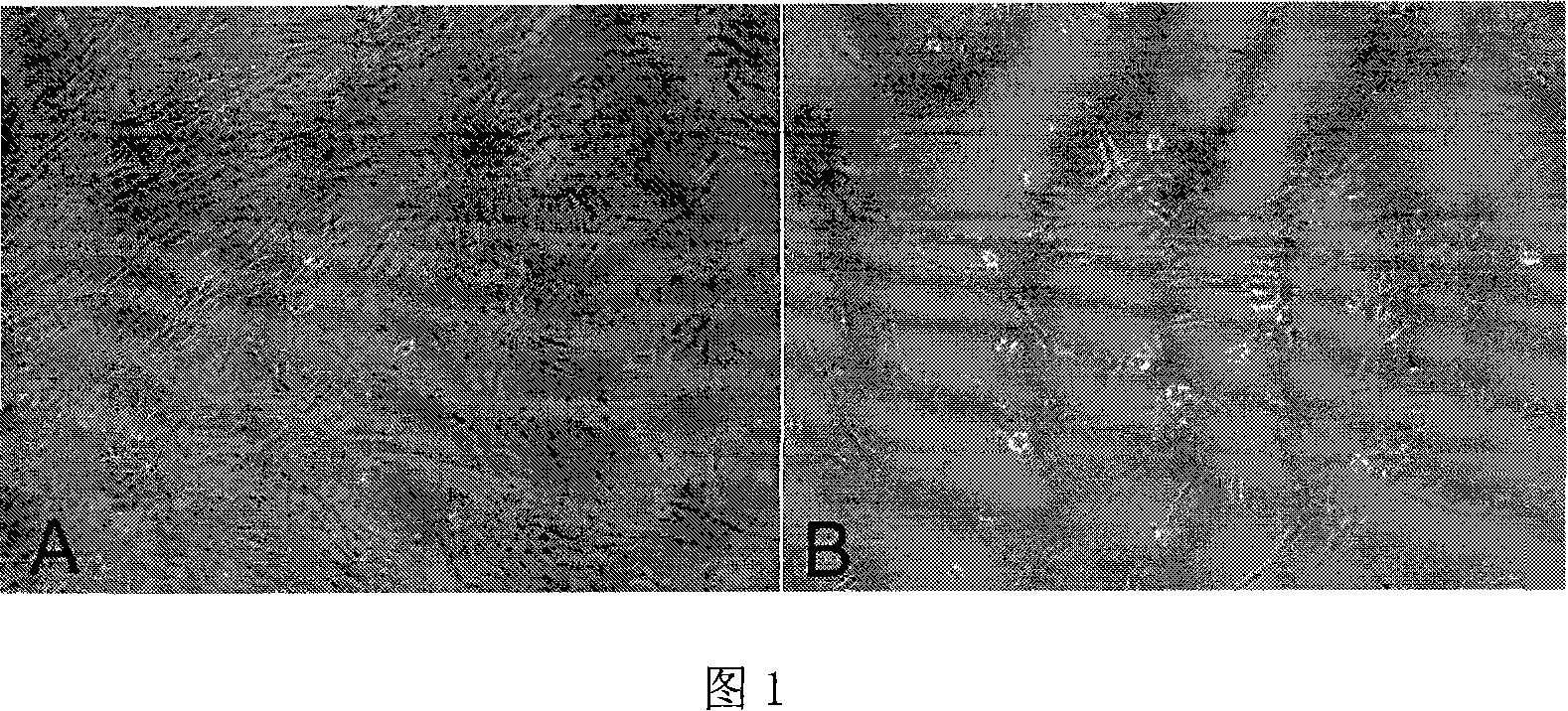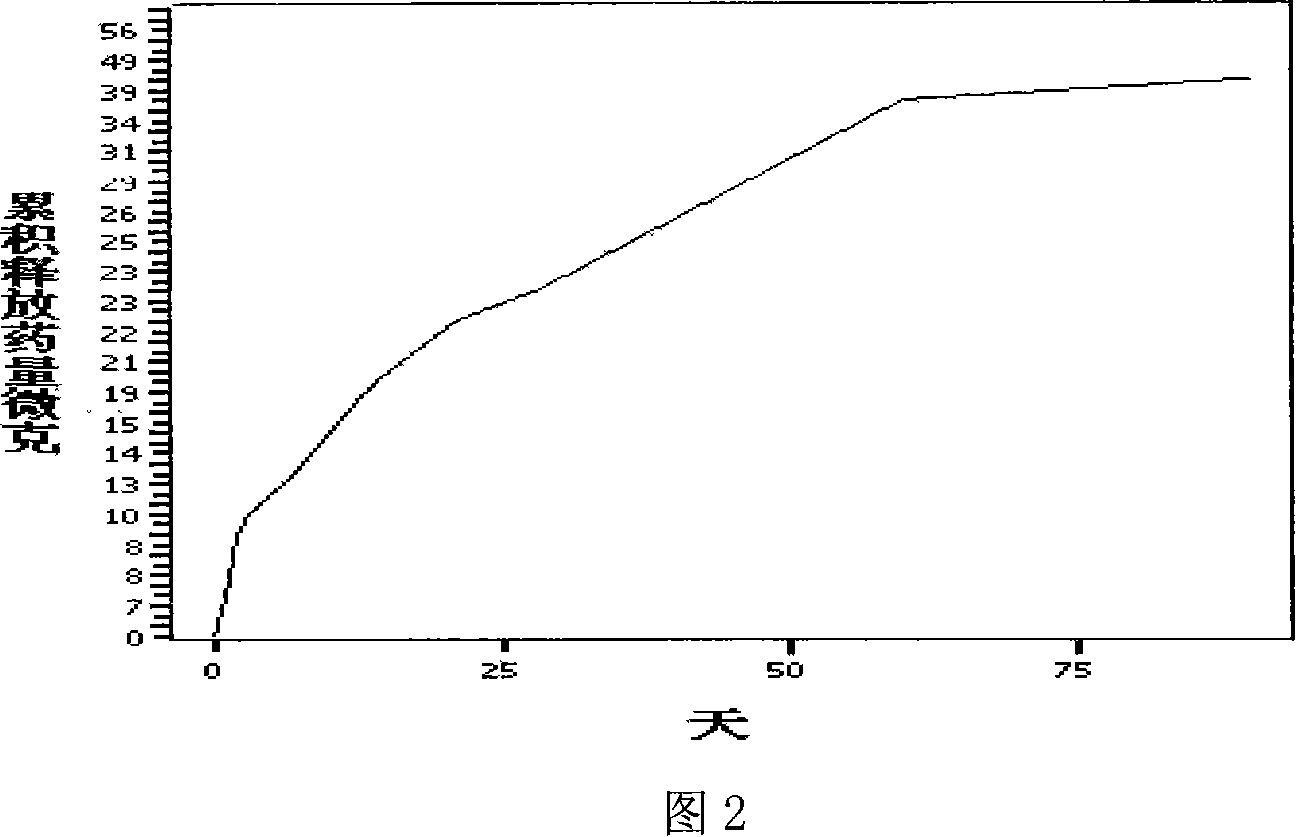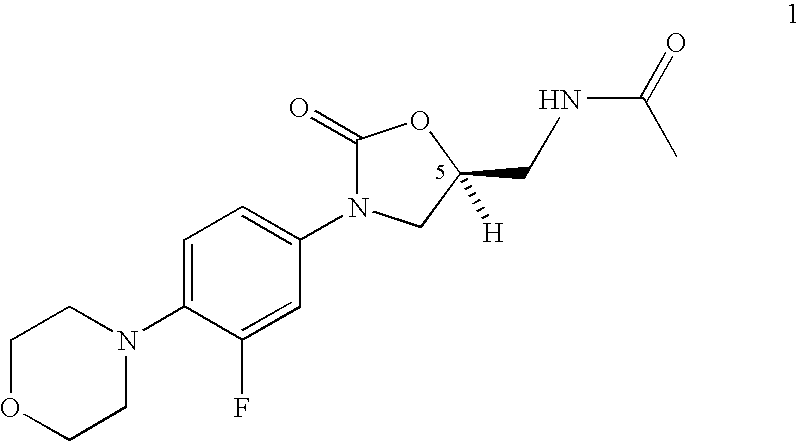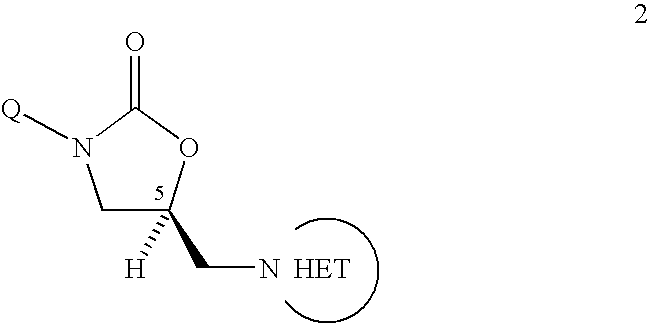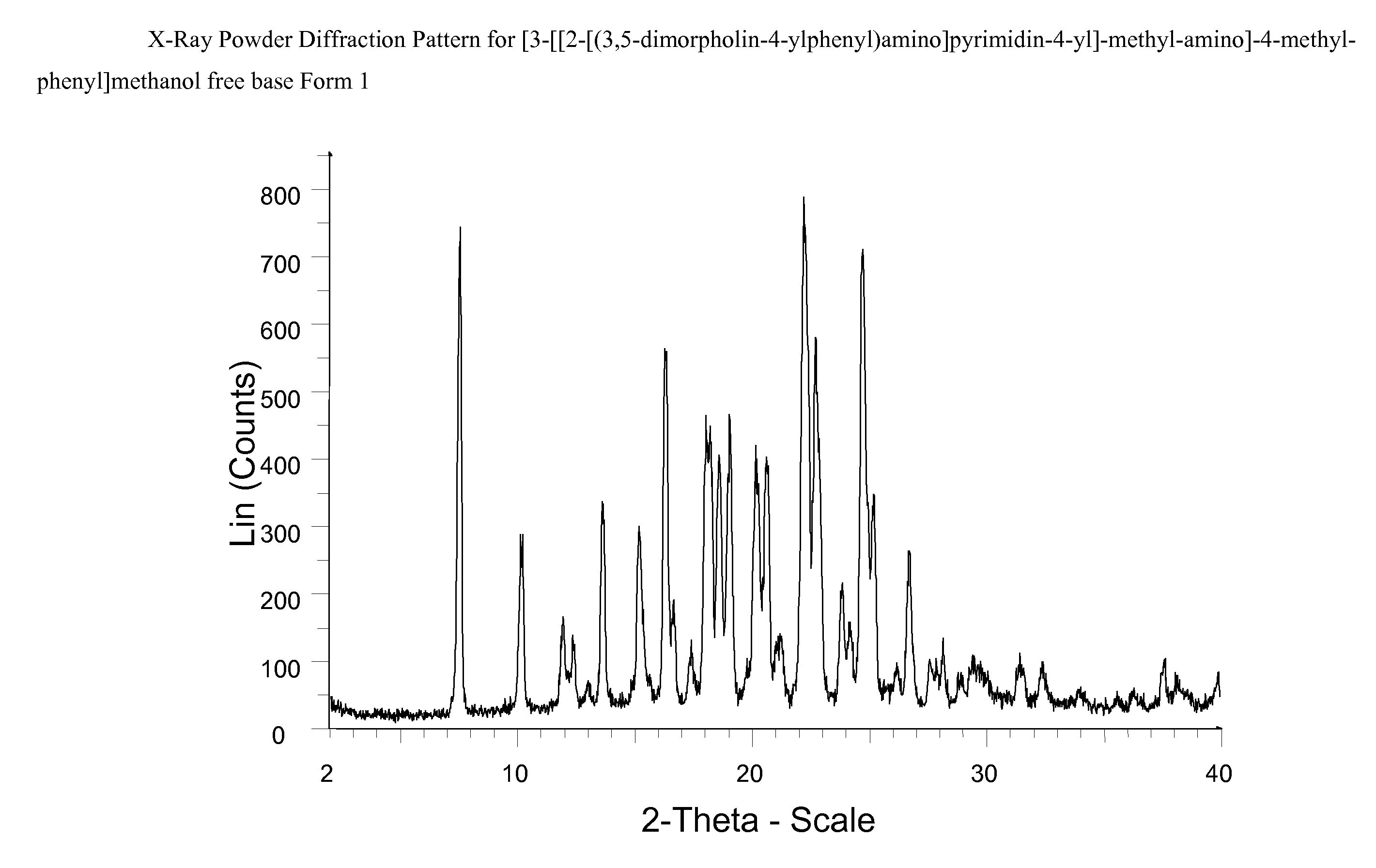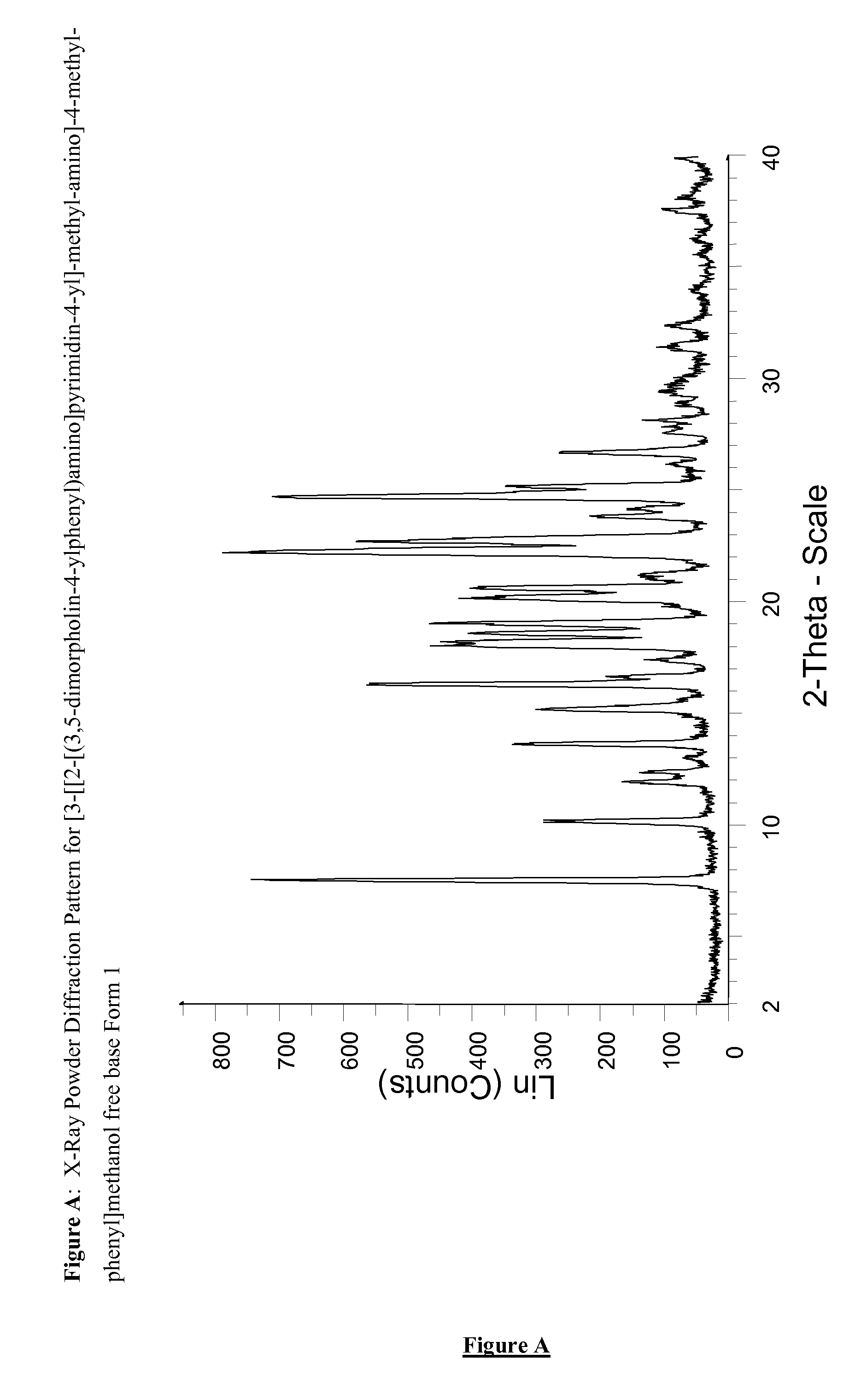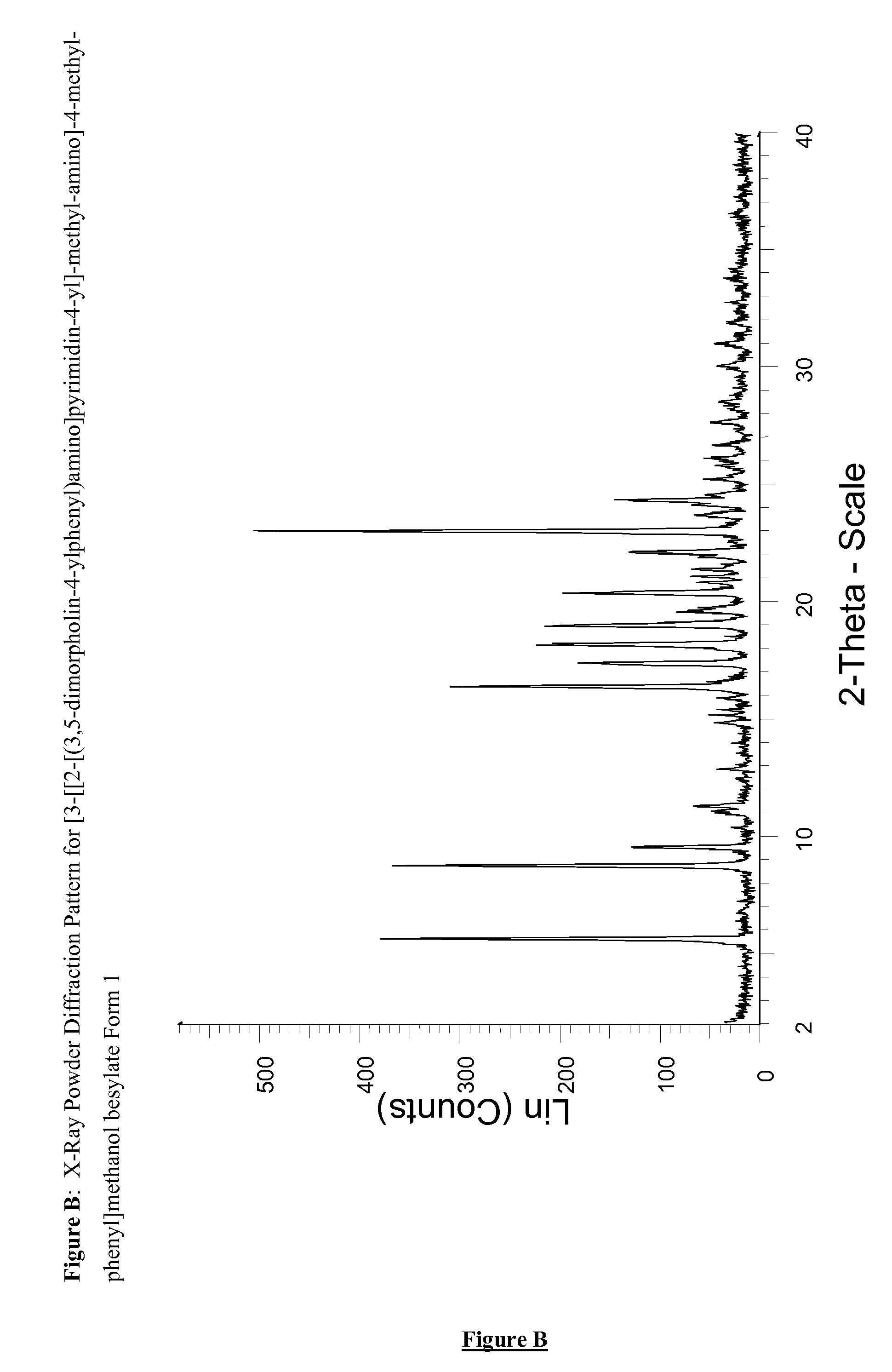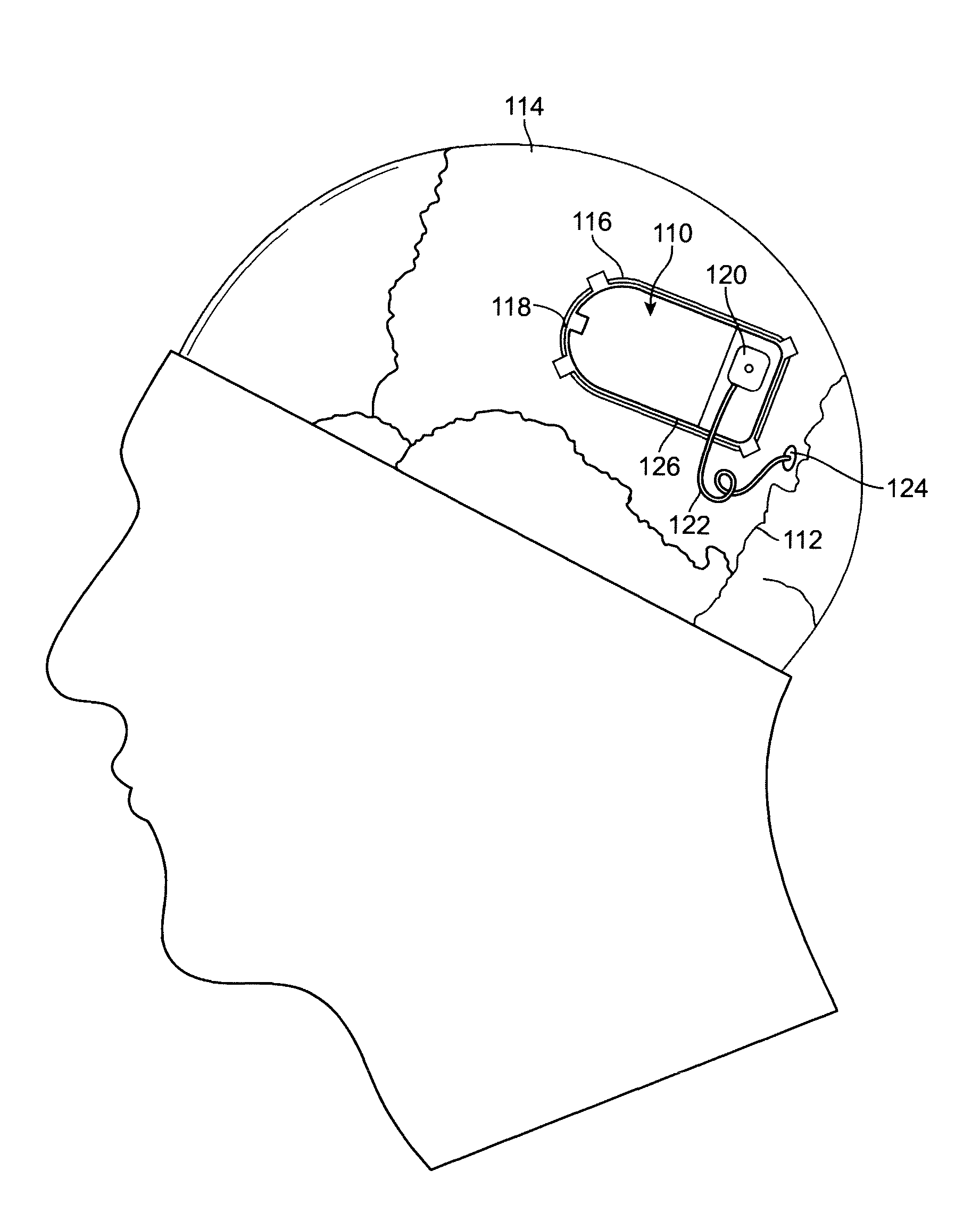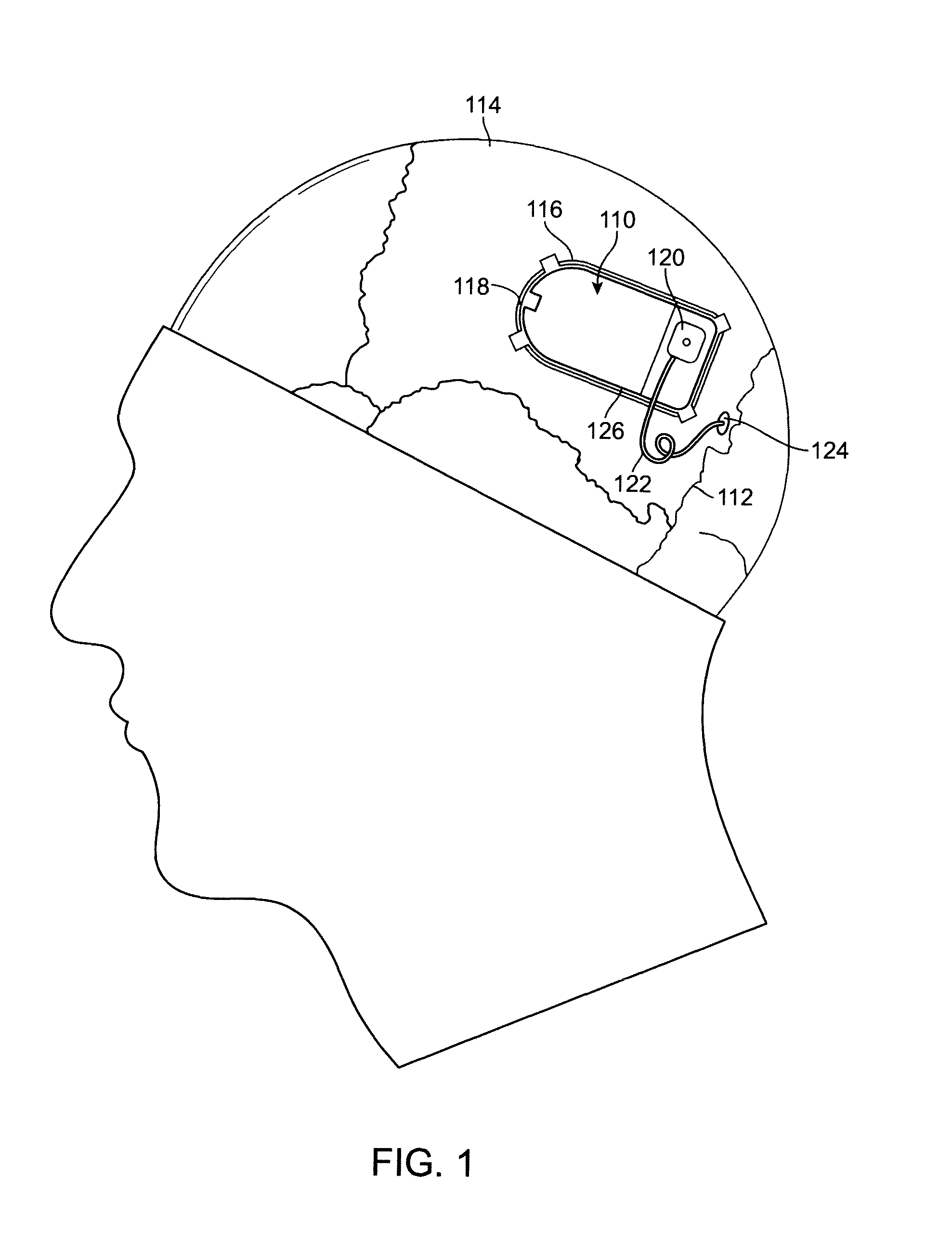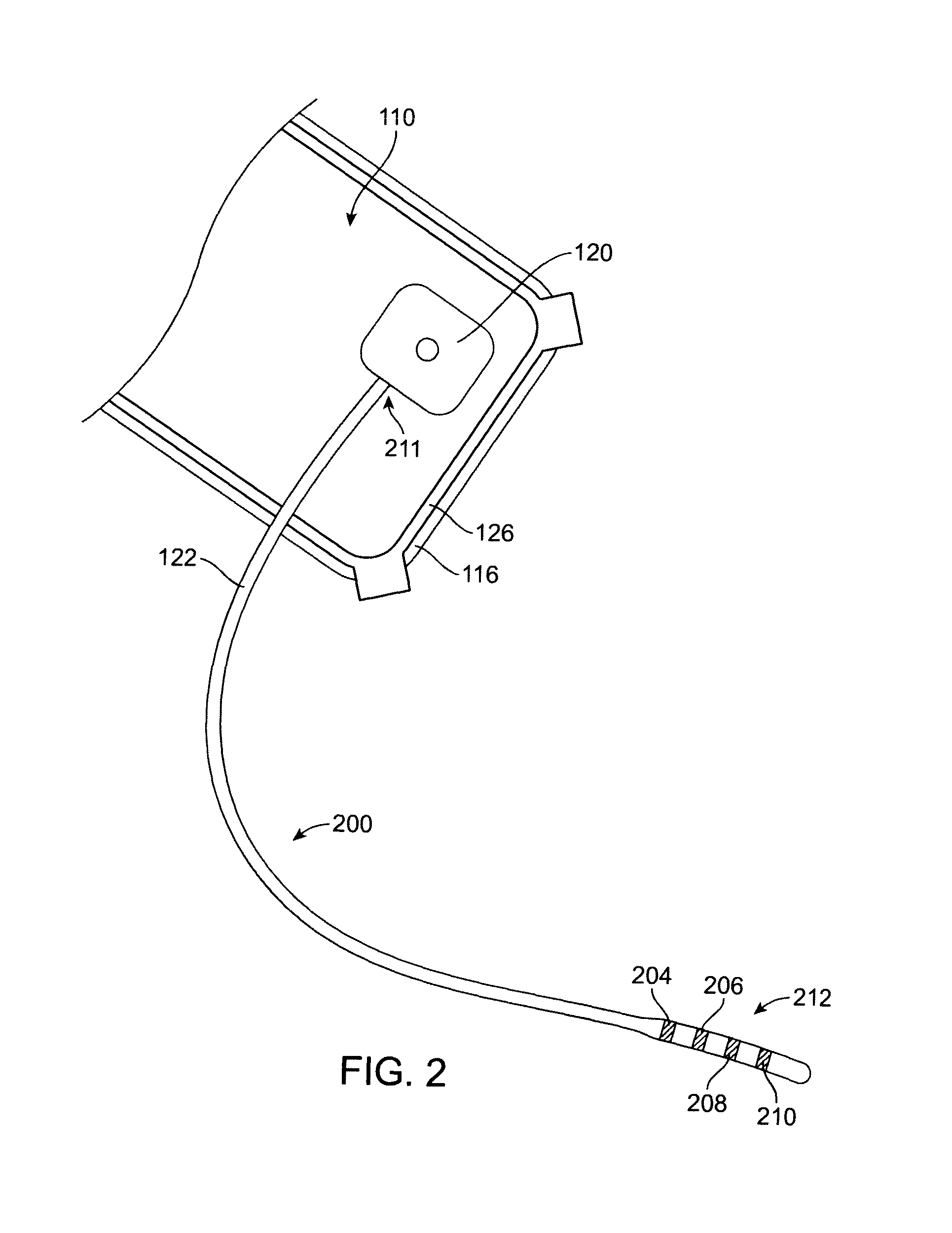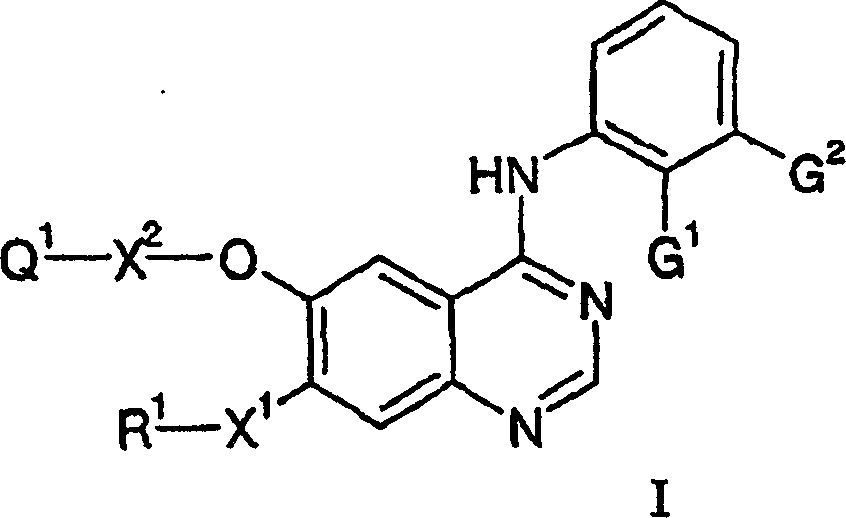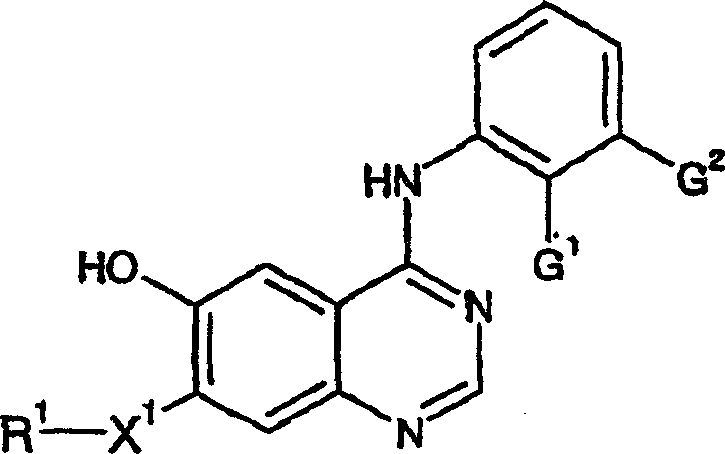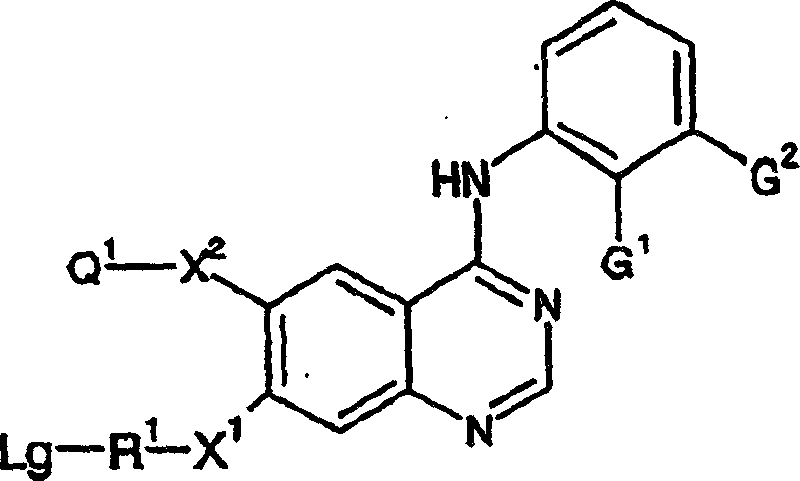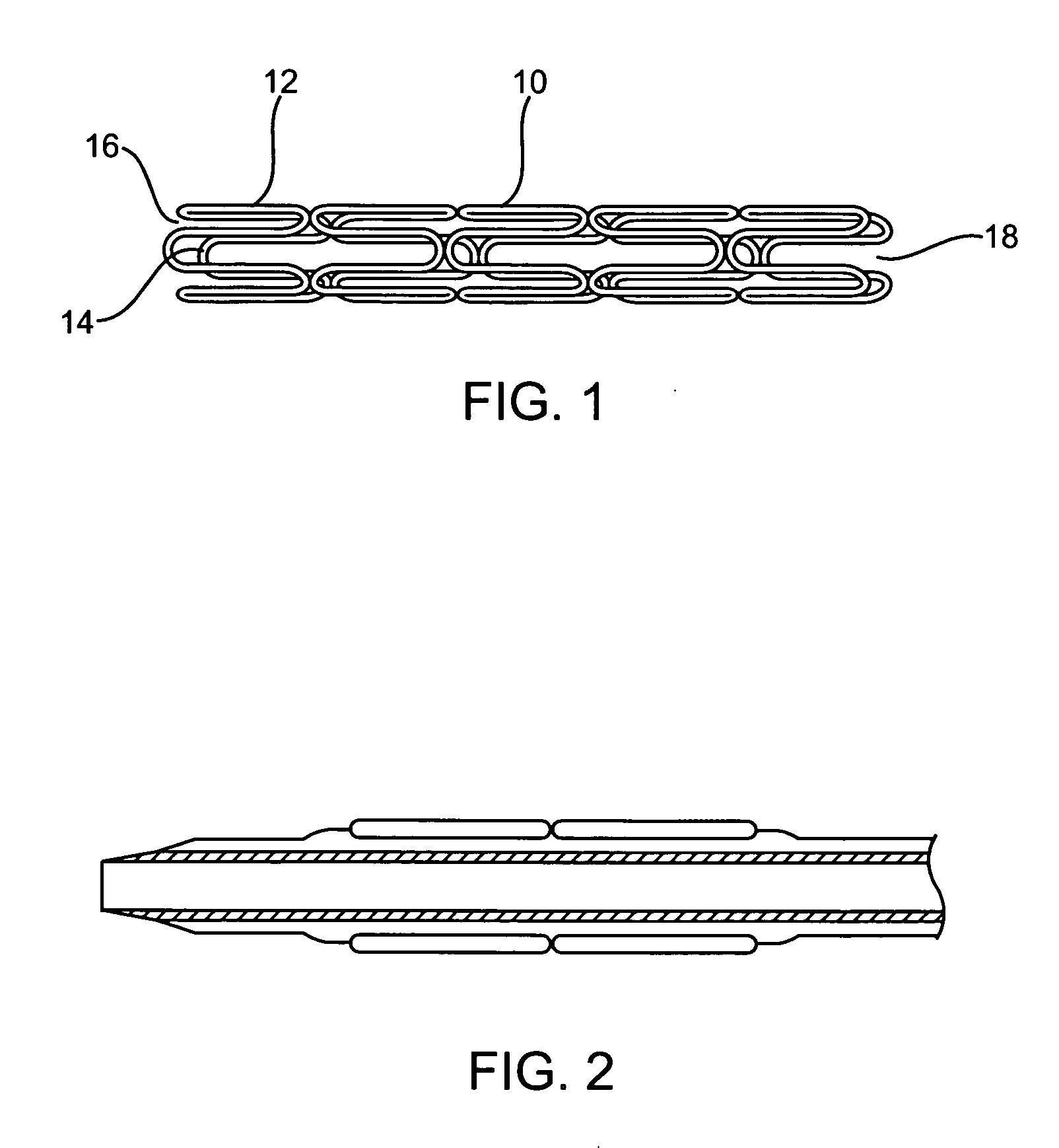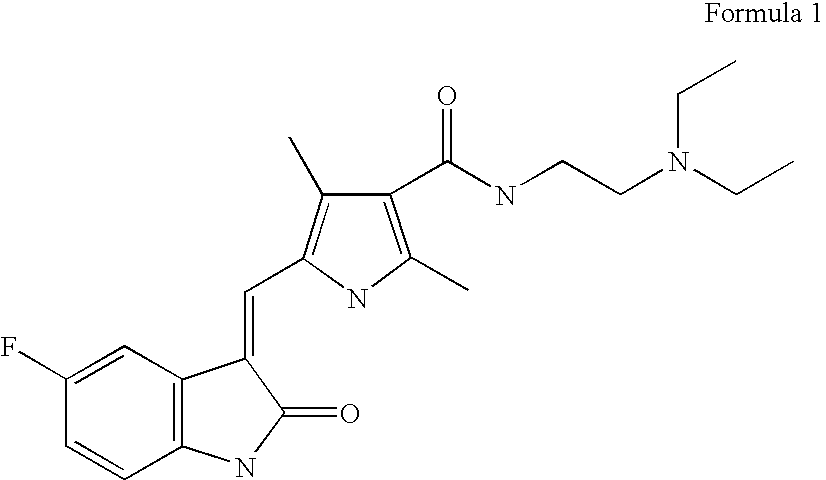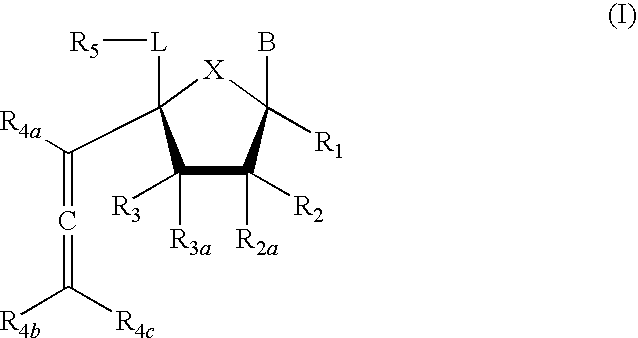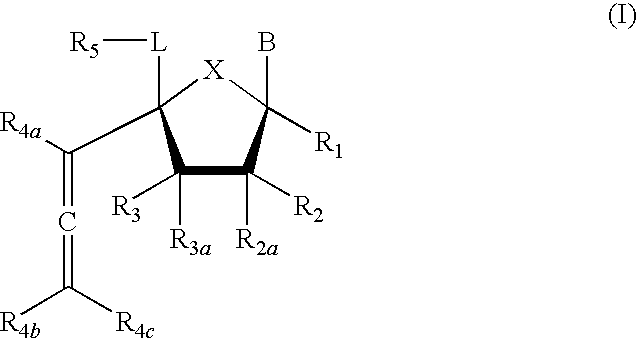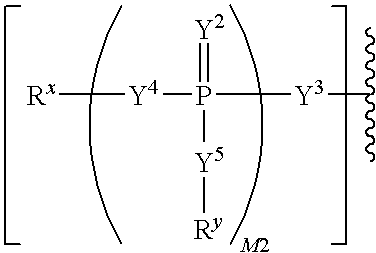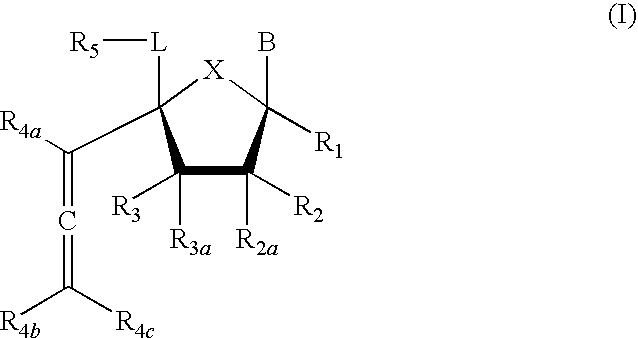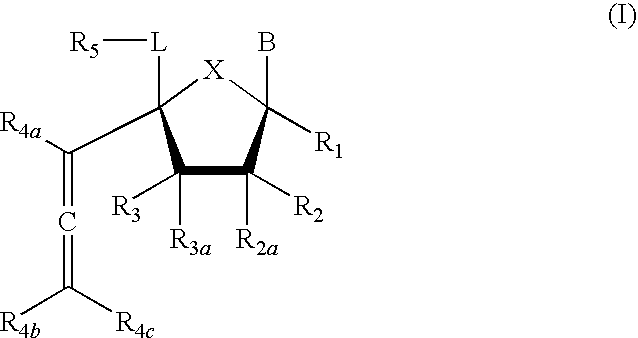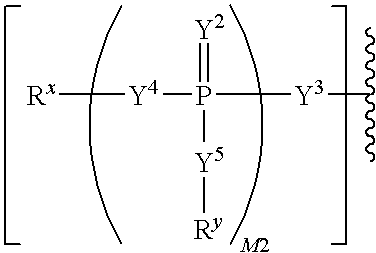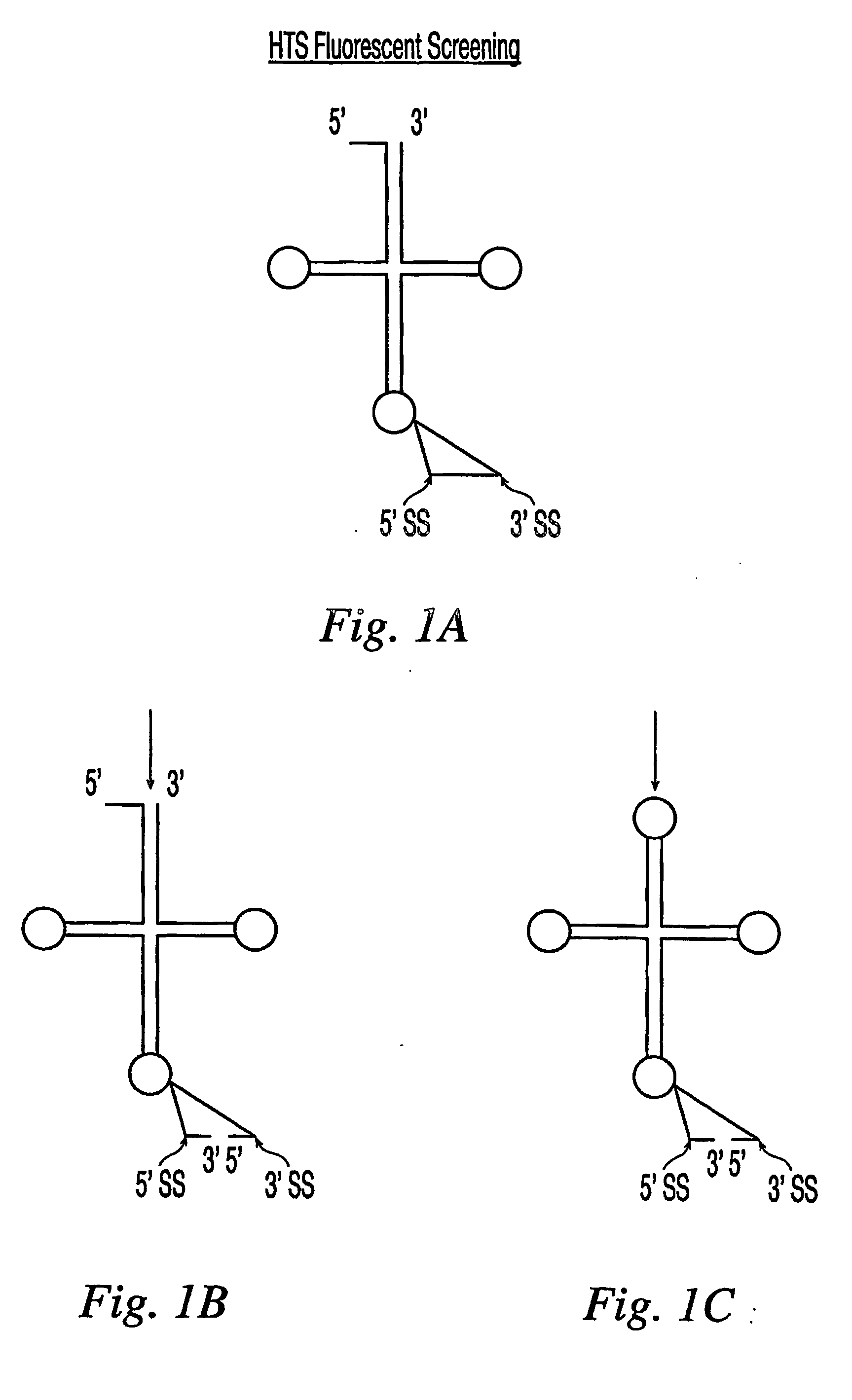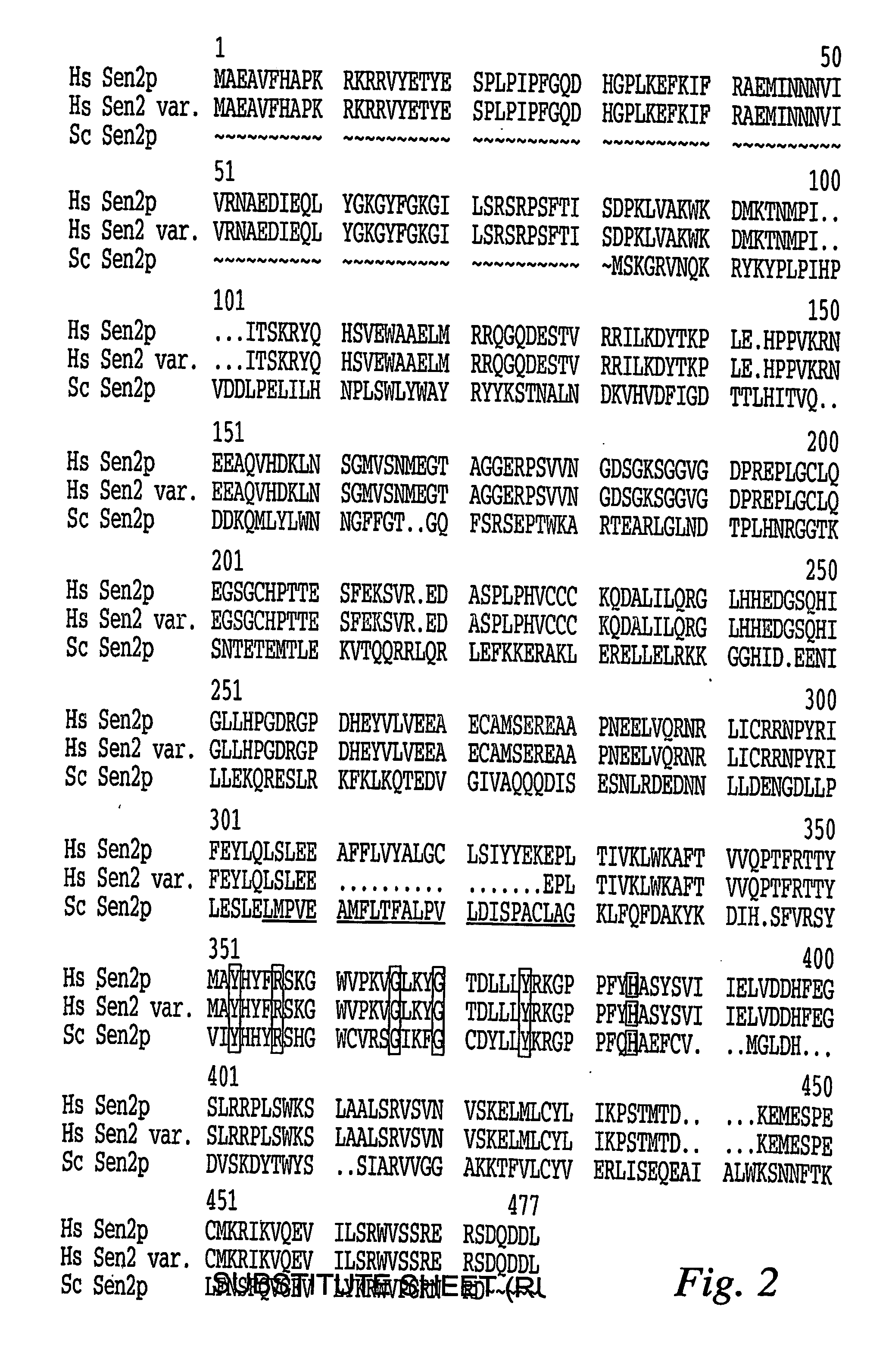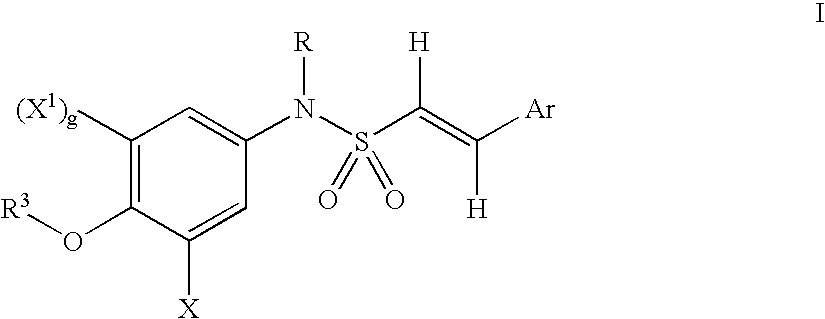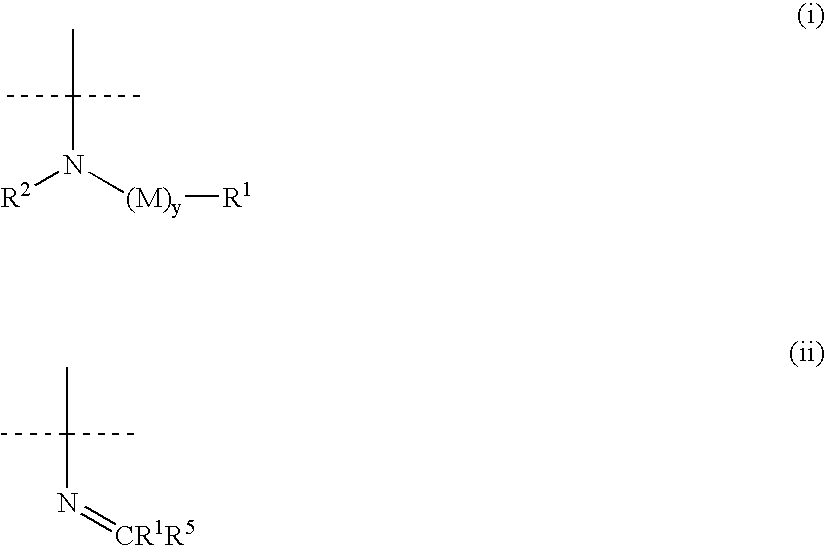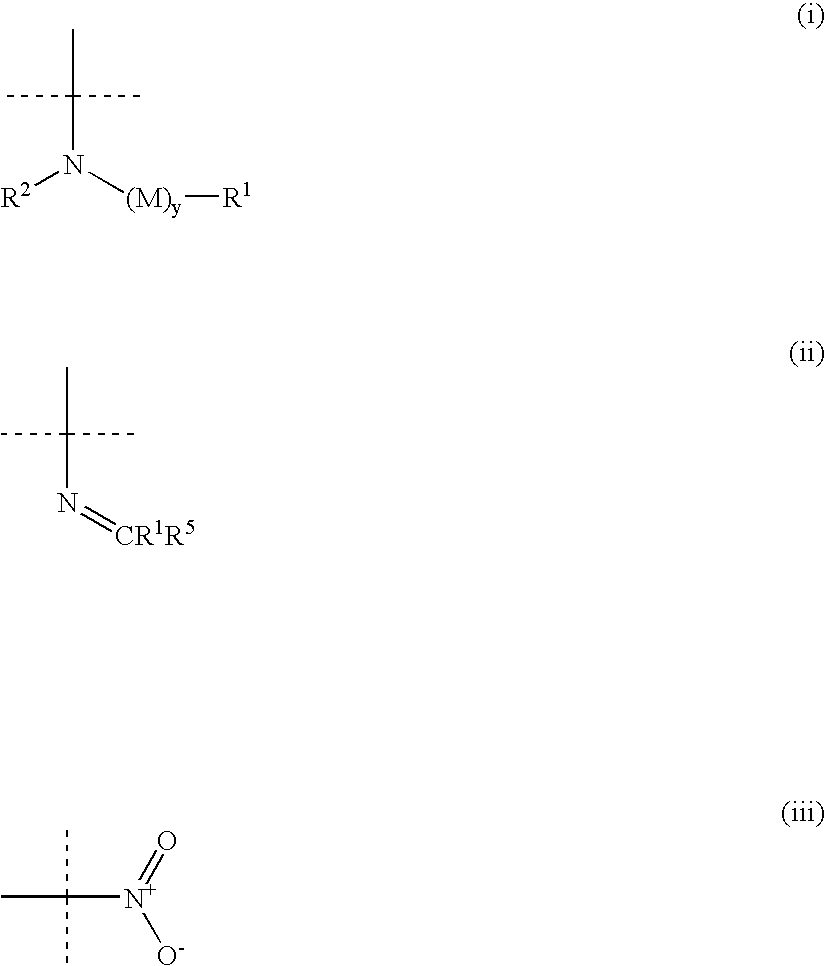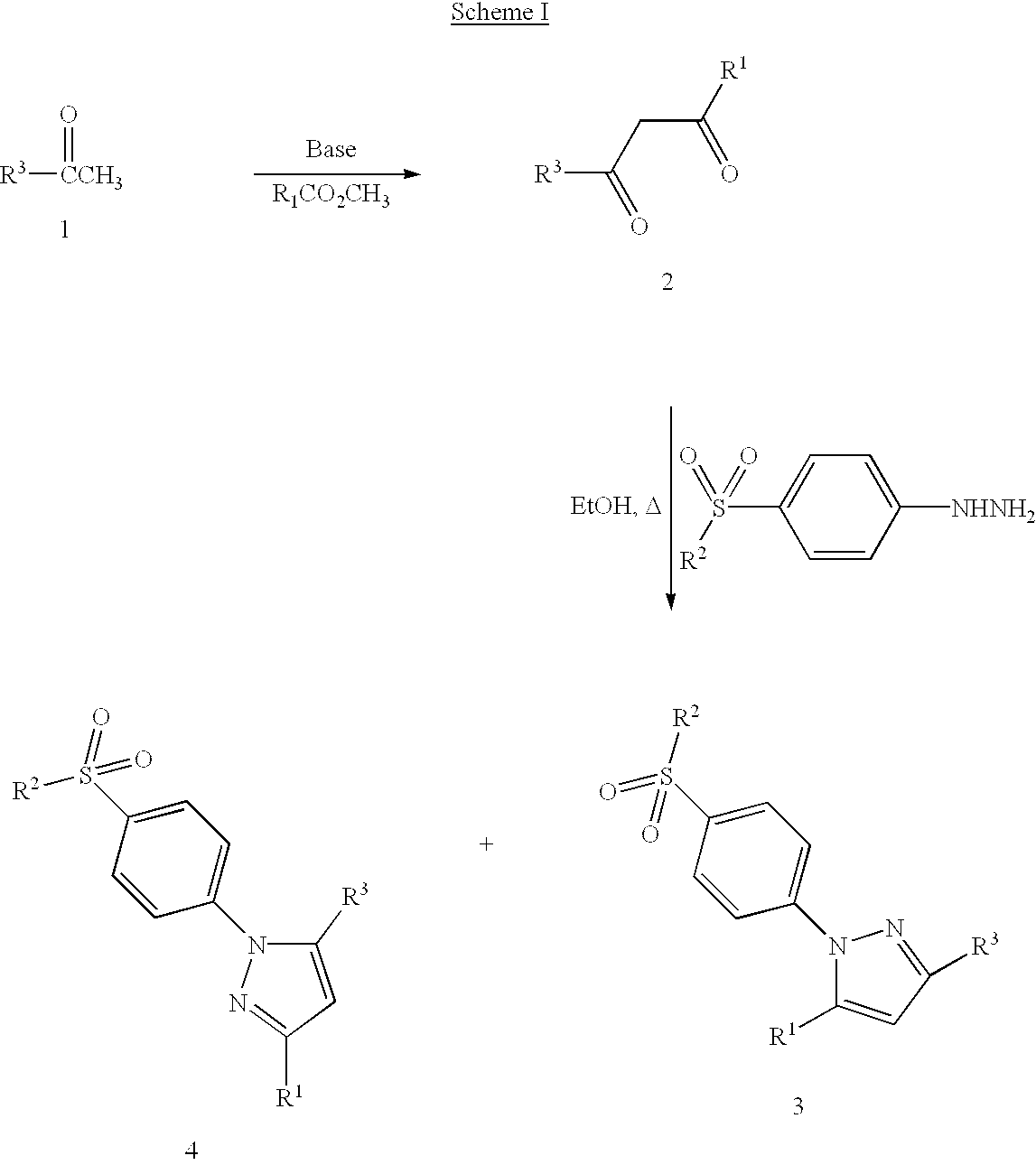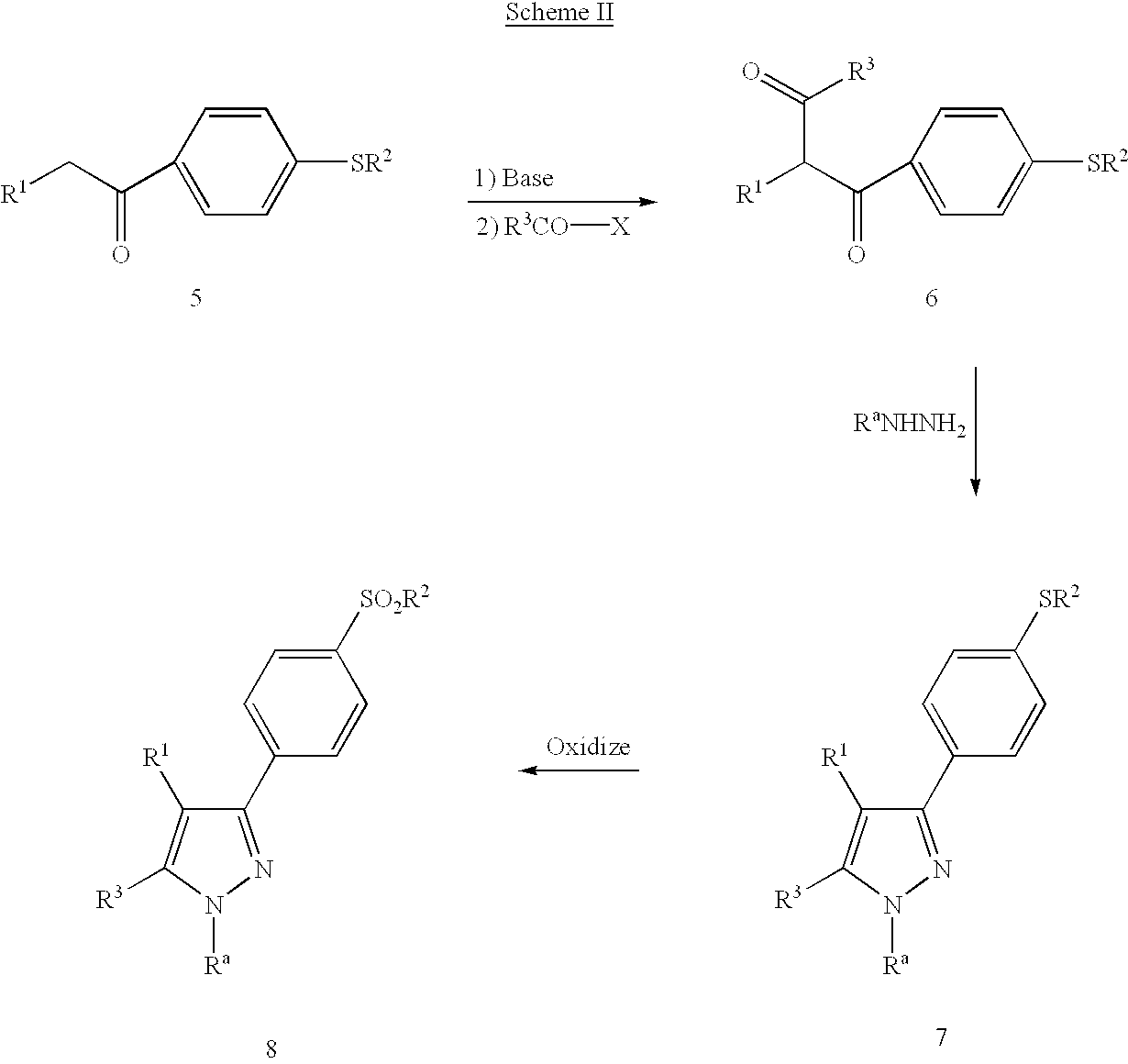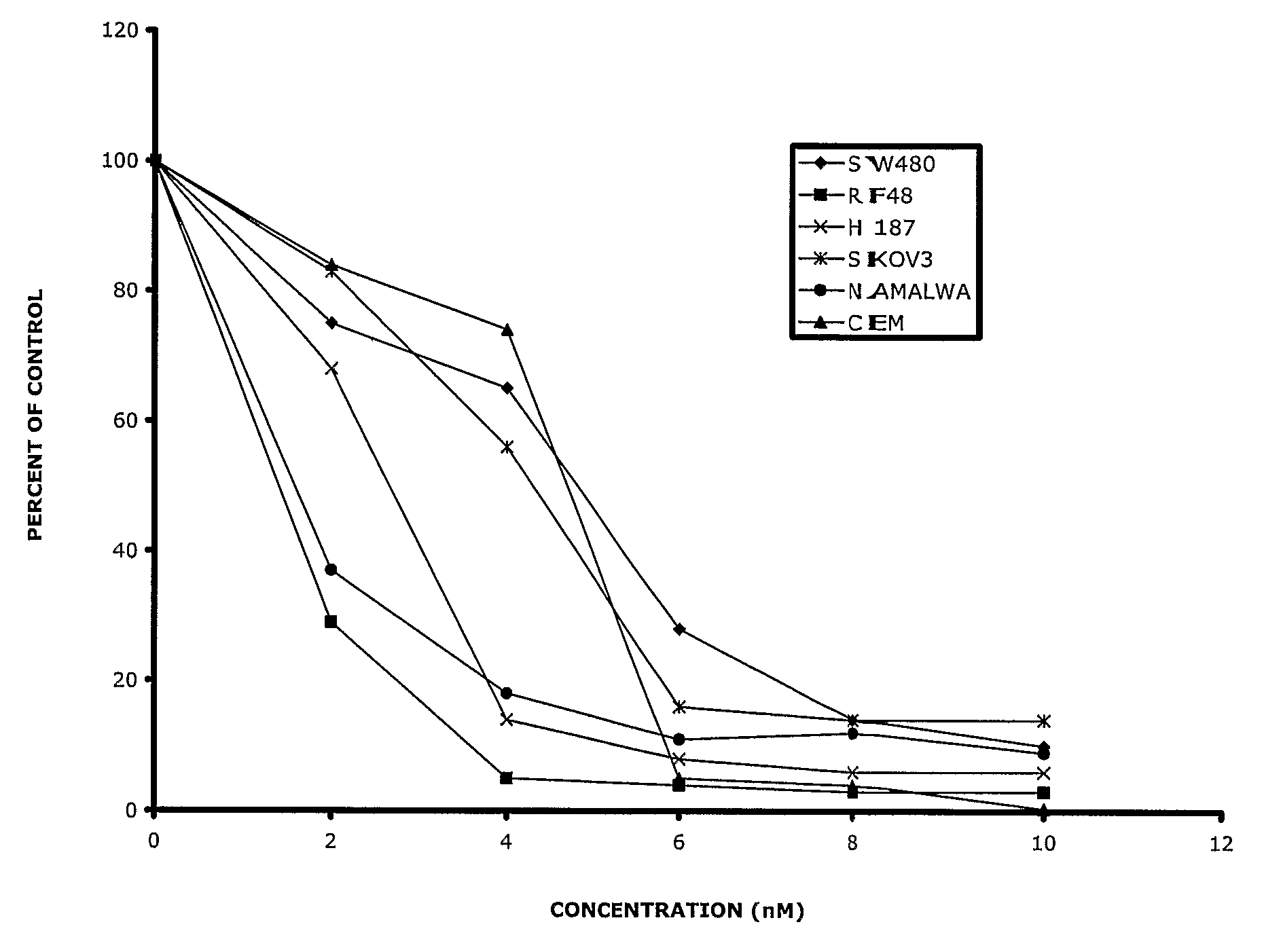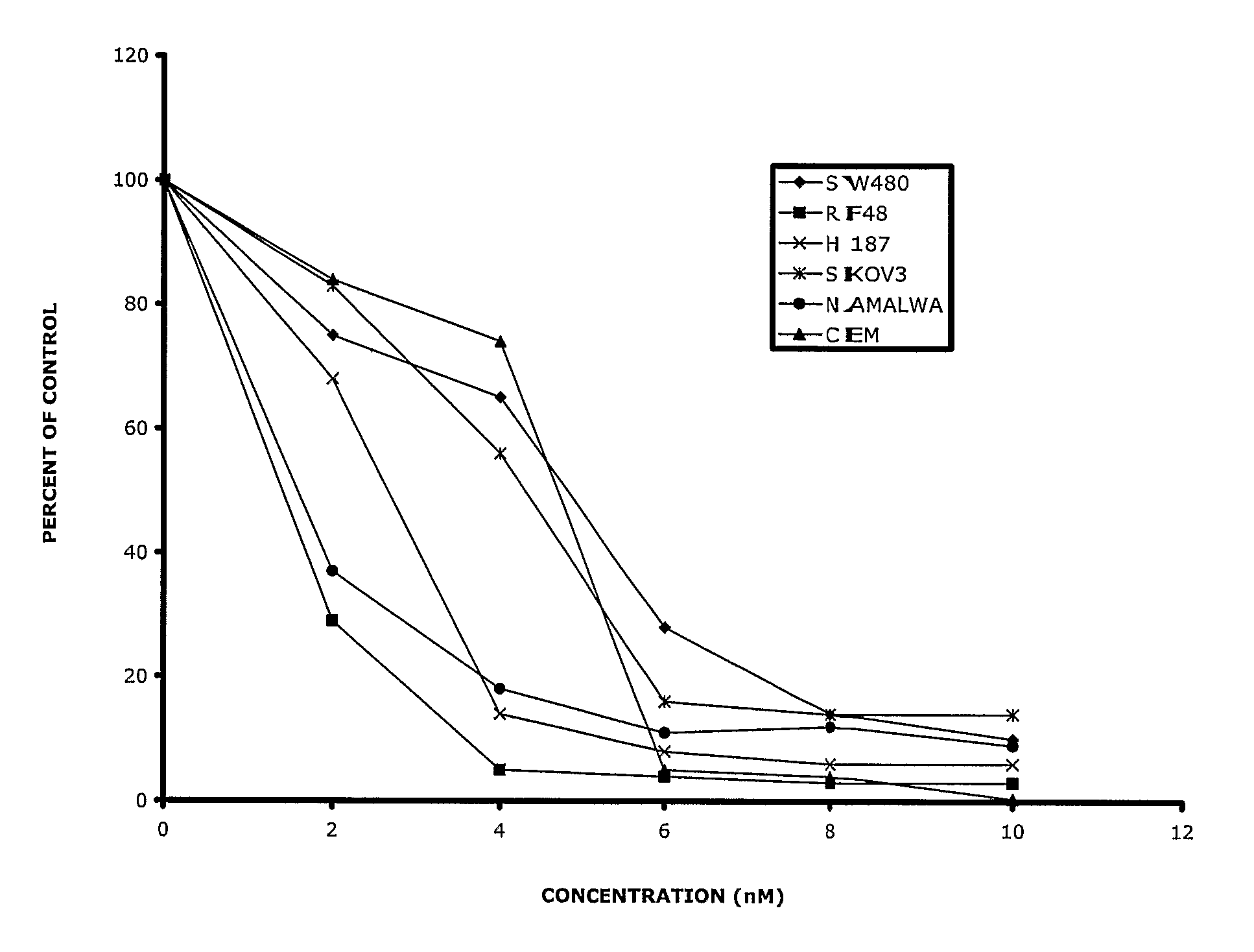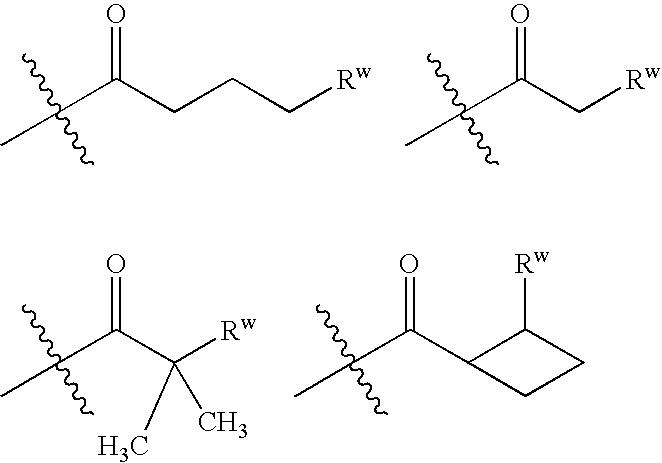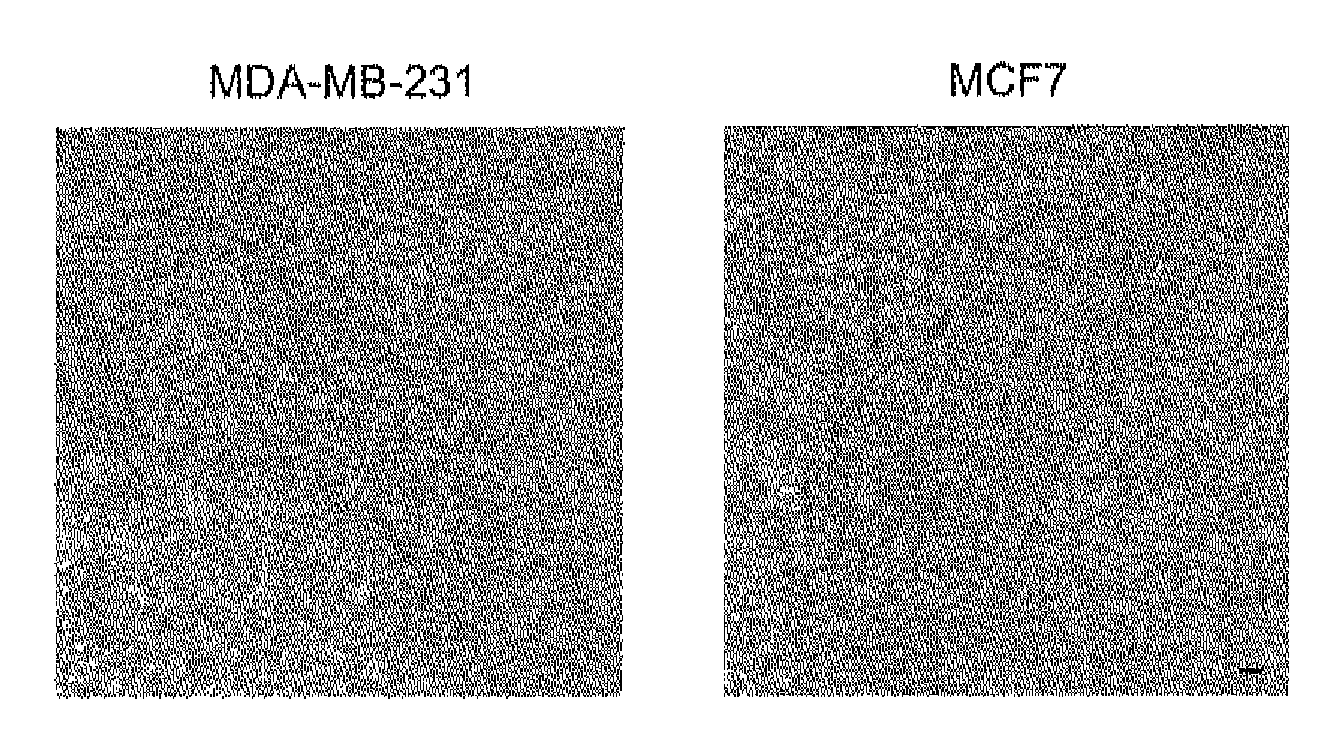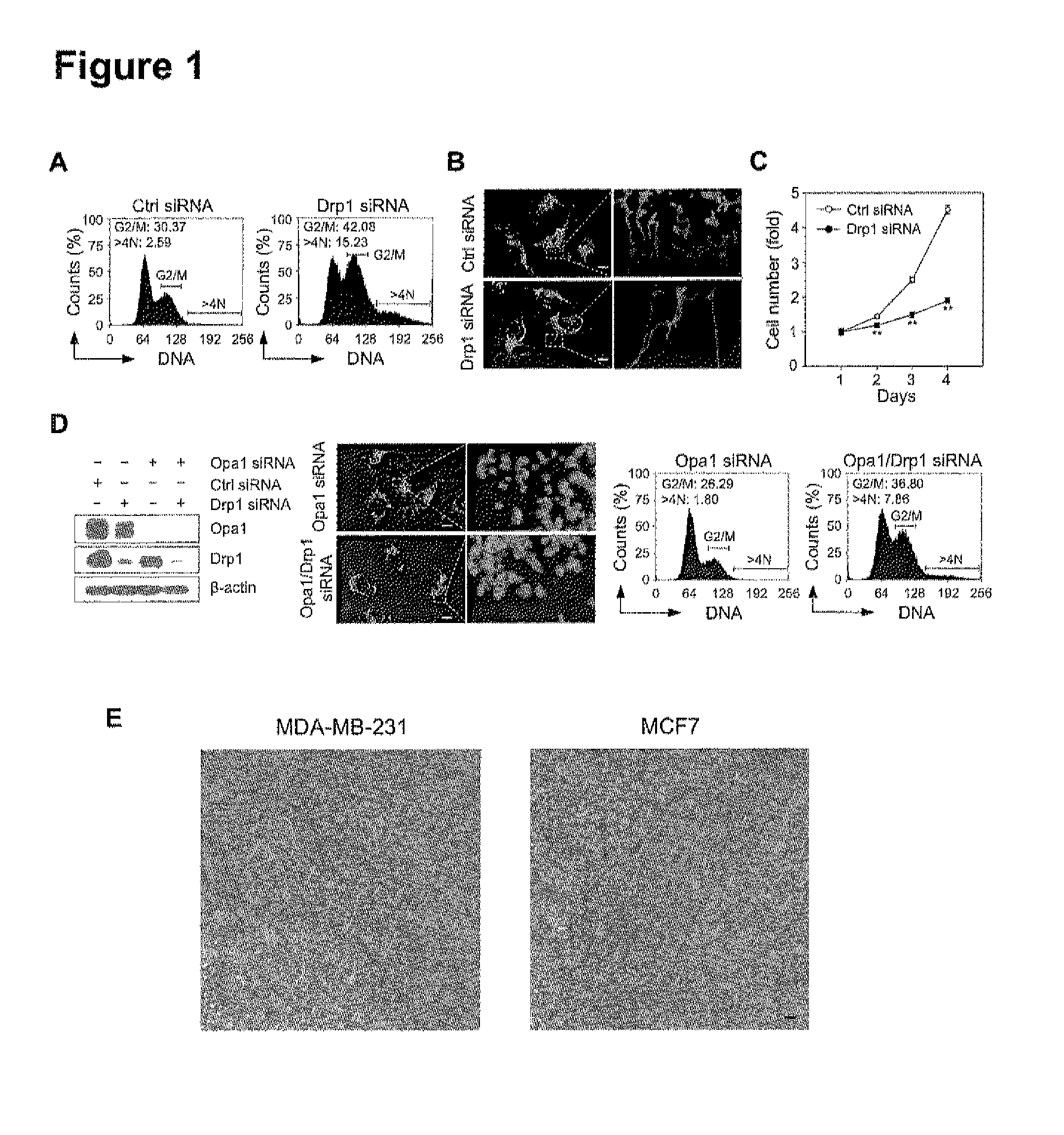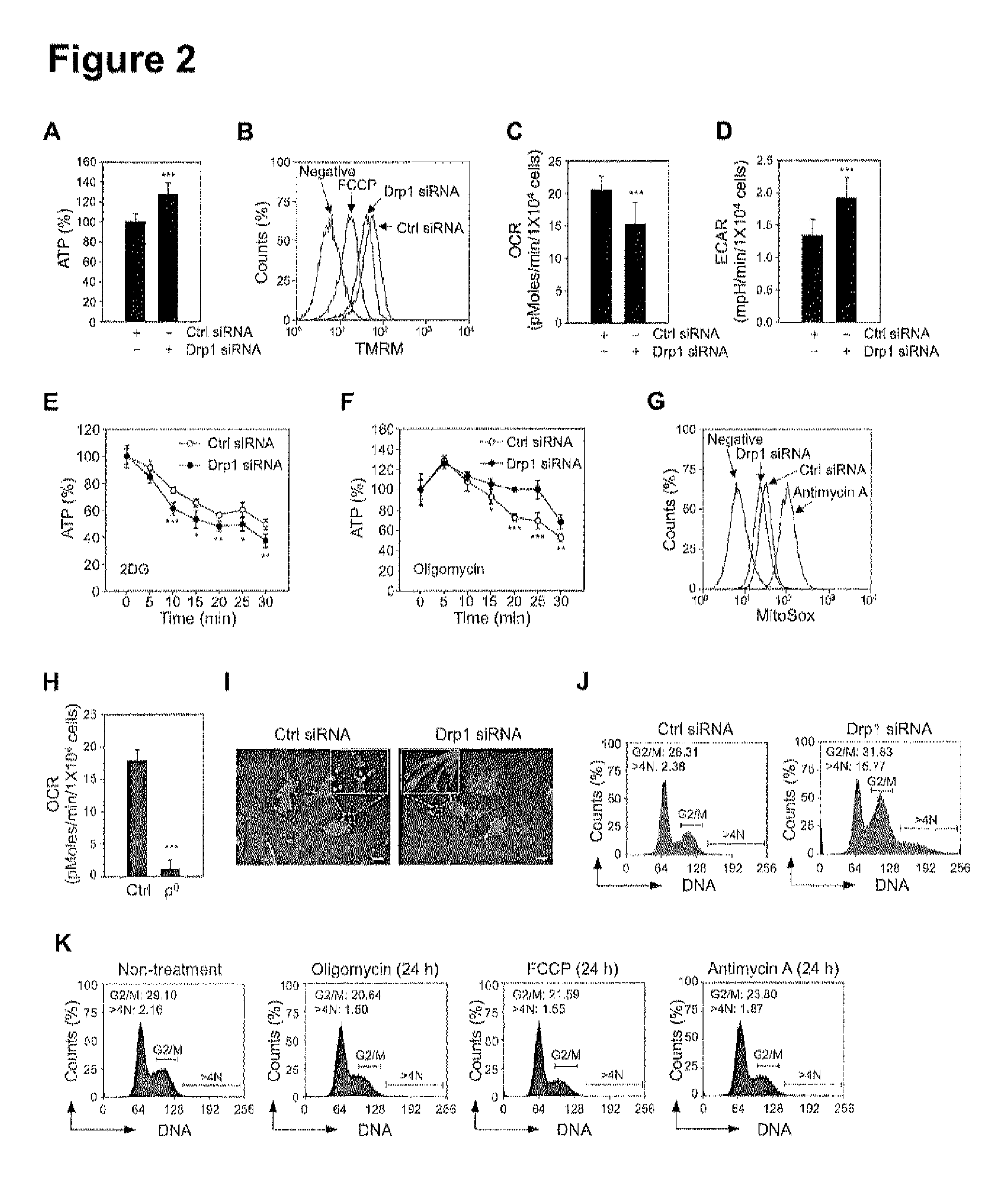Patents
Literature
151 results about "Antiproliferative Agents" patented technology
Efficacy Topic
Property
Owner
Technical Advancement
Application Domain
Technology Topic
Technology Field Word
Patent Country/Region
Patent Type
Patent Status
Application Year
Inventor
The maintenance agents are generally 4 classes of drugs. Calcineurin Inhibitors: Tacrolimus and Cyclosporine. Antiproliferative agents: Mycophenolate Mofetil, Mycophenolate Sodium and Azathioprine. mTOR inhibitor: Sirolimus. Steroids: Prednisone.
Multi-Functional Small Molecules as Anti-Proliferative Agents
InactiveUS20080221132A1High activityBiocideNervous disorderHistone deacetylaseAntiproliferative Agents
The present invention relates to the compositions, methods, and applications of a novel approach to selective inhibition of several cellular or molecular targets with a single small molecule. More specifically, the present invention relates to multi-functional small molecules wherein one functionality is capable of inhibiting histone deacetylases (HDAC) and the other functionality is capable of inhibiting a different cellular or molecular pathway involved in aberrant cell proliferation, differentiation or survival.
Owner:CURIS INC
Medical devices to treat or inhibit restenosis
Implantable medical devices having anti-restenotic coatings are disclosed. Specifically, implantable medical devices having coatings of certain antiproliferative agents, particularly a certain endothelin receptor inhibitor, are disclosed. The anti-restenotic endothelin receptor inhibitor is atrasentan, and pharmaceutically acceptable derivatives thereof. The anti-restenotic medical devices include stents, catheters, micro-particles, probes and vascular grafts. Intravascular stents are preferred medical devices. The medical devices can be coated using any method known in the art including compounding the endothelin receptor inhibitor with a biocompatible polymer prior to applying the coating. Moreover, medical devices composed entirely of biocompatible polymer-endothelin receptor inhibitor blends are disclosed. Additionally, medical devices having a coating comprising at least one endothelin receptor inhibitor in combination with at least one additional therapeutic agent are also disclosed. Furthermore, related methods of using and making the anti-restenotic implantable devices are also disclosed.
Owner:MEDTRONIC VASCULAR INC
Trans-capsular administration of high specificity cytokine inhibitors into orthopedic joints
ActiveUS20050025765A1Extended half-lifeEliminate side effectsOrganic active ingredientsPeptide/protein ingredientsWhite blood cellOrthopedic department
The present invention relates to trans-capsularly administering into a diseased joint a high specificity antagonist selected from the group consisting of: i) an inhibitor of a pro-inflammatory interleukin; ii) an inhibitor of TNF-α synthesis; iii) an inhibitor of membrane-bound TNF-α; iv) an inhibitor of a natural receptor of TNF-α; v) an inhibitor of NO synthase, vi) an inhibitor of PLA2 enzyme; vii) an anti-proliferative agent; viii) an anti-oxidant; ix) an apoptosis inhibitor selected from the group consisting of EPO mimetic peptides, EPO mimetibodies, IGF-I, IGF-II, and caspase inhibitors, and x) an inhibitor of MMPs; and xi) an inhibitor of p38 kinase.
Owner:DEPUY SYNTHES PROD INC
Rapamycin analogues and the uses thereof in the treatment of neurological, proliferative,and inflammatory disorders
InactiveUS20060135549A1Useful in treatmentBiocideNervous disorderAntiproliferative AgentsNeurological disorder
The present invention provides compounds of the following structure, wherein R1, R2, R4, R4′, R6, R7, and R15 are defined above: These compounds are useful in treating neurological disorders or complications due to stroke or head injury; benign or malignant neoplastic disease, carcinomas and adenocarcinomas; proliferative disorders; and inflammatory disorders. The compounds are therefore useful as neuroprotective and neuroregenerative, anti-proliferative, and anti-inflammatory agents.
Owner:WYETH LLC
Method for treating abnormal cell growth
InactiveUS20050272755A1Ease of detectabilityEasy to prepareBiocideAnimal repellantsAbnormal tissue growthMetabolite
The present Invention relates to a method of treating abnormal cell growth in a subject, comprising administering to said subject having abnormal cell growth: (a) a compound selected from the group consisting of a camptothecin, a camptothecin derivative, or a pharmaceutically acceptable salt, solvate or prodrug of said compounds; (b) a pyrimidine derivative or a pharmaceutically acceptable salt, solvate or prodrug of said pyrimidine derivative; and (c) an anti-tumor agent selected from the group consisting of antiproliferative agents, kinase inhibitors, angiogenesis inhibitors, growth factor inhibitors, cox-I inhibitors, cox-II inhibitors, mitotic inhibitors, alkylating agents, anti-metabolites, intercalating antibiotics, growth factor inhibitors, radiation, cell cycle inhibitors, enzymes, topoisomerase inhibitors, biological response modifiers, antibodies, cytotoxics, anti-hormones, anti-androgens and combinations thereof.
Owner:PFIZER INC
Synthesis of tetracyclines and analogues thereof
The tetracycline class of antibiotics has played a major role in the treatment of infectious diseases for the past 50 years. However, the increased use of the tetracyclines in human and veterinary medicine has led to resistance among many organisms previously susceptible to tetracycline antibiotics. The modular synthesis of tetracyclines and tetracycline analogs described provides an efficient and enantioselective route to a variety of tetracycline analogs and polycyclines previously inaccessible via earlier tetracycline syntheses and semi-synthetic methods. These analogs may be used as anti-microbial agents or anti-proliferative agents in the treatment of diseases of humans or other animals.
Owner:PRESIDENT & FELLOWS OF HARVARD COLLEGE
Medical devices to treat or inhibit restenosis
Implantable medical devices having anti-restenotic coatings are disclosed. Specifically, implantable medical devices having coatings of certain antiproliferative agents, particularly a certain KSP inhibitor, are disclosed. The anti-restenotic KSP inhibitor is CK-0238273, and pharmaceutically acceptable derivatives thereof. The anti-restenotic medical devices include stents, catheters, micro-particles, probes and vascular grafts. Intravascular stents are preferred medical devices. The medical devices can be coated using any method known in the art including compounding the KSP inhibitor with a biocompatible polymer prior to applying the coating. Moreover, medical devices composed entirely of biocompatible polymer-KSP inhibitor blends are disclosed. Additionally, medical devices having a coating comprising at least one KSP inhibitor in combination with at least one additional therapeutic agent are also disclosed. Furthermore, related methods of using and making the anti-restenotic implantable devices are also disclosed.
Owner:MEDTRONIC VASCULAR INC
Drug eluting lead systems
Medical electrical lead systems and related methods are described. The lead systems may be configured to be at least partially implanted in neural tissue of a subject, such as a brain of a subject. Some variations of the lead systems may comprise a lead body, an electrode connected to the lead body, and a bioactive agent. The electrode and / or lead body may comprise a substrate, and the bioactive agent may be supported by the substrate (e.g., by a substantial portion of the area of the substrate). Examples of bioactive agents that may be used in the lead system include antiproliferative agents, bactericidal agents, bacteriostatic agents, antiepileptic agents, and / or antifungal agents. Methods described herein may comprise coating a lead body and / or an electrode of a medical electrical lead system with at least one bioactive agent, where the lead body and the electrode are connected to each other.
Owner:NEUROPACE
2-Desmethyl ansamycin compounds
ActiveUS20050026894A1Reduce potential side effectsBiocideOrganic chemistryAntiproliferative AgentsMedicinal chemistry
2-Desmethyl ansamycins having a structure according to formula I, where R1, R2, R3, R4, R5 and R6 are as defined herein, and other 2-desmethyl ansamycins are useful as antiproliferative agents.
Owner:KOSAN BIOSCI
Combinations of drugs for the treatment of neoplasms
The invention features a method for treating a patient having a cancer or other neoplasm by administering to the patient chlorpromazine or a chlorpromazine analog and an antiproliferative agent simultaneously or within 14 days of each other in amounts sufficient to treat the patient.
Owner:COMBINATORX
Pharmaceutical composition for treating hyperplasia diseases
ActiveCN101675930AGood treatment effectOrganic active ingredientsOrganic chemistryDiseaseAntiproliferative Agents
The invention relates to a pharmaceutical composition for treating hyperplasia diseases such as tumors, Which contains a compound of a formula I or its pharmaceutically acceptable salts, and at leastan antiproliferative agent. The pharmaceutical composition has a cooperative synergism.
Owner:JIANGSU HENGRUI MEDICINE CO LTD +1
Nucleoside phosphonate derivatives
The present invention discloses compounds of formula (I) or (II), or pharmaceutically acceptable salts, esters, or prodrugs thereof:which inhibit, preventing or treating abnormal cellular proliferation and / or a viral infection, particularly by HIV, HCV or HBV. Consequently, the compounds of the present invention interfere with the replication cycle of a virus and are also useful as antiviral agents, or interfere with host cellular biochemical process and are also useful as antiproliferative agents. The present invention further relates to pharmaceutical compositions comprising the aforementioned compounds for administration to a subject suffering from viral infection and / or cell proliferation. The invention also relates to methods of treating a viral infection and / or cell proliferation in a subject by administering a pharmaceutical composition comprising the compounds of the present invention. The present invention relates to novel antiviral / anti-proliferative compounds represented herein above, pharmaceutical compositions comprising such compounds, and methods for the treatment or prophylaxis of viral infection in a subject in need of such therapy with said compounds.
Owner:ENANTA PHARM INC
Sulfide, sulfoxide and sulfone chalcone analogues, derivatives thereof and therapeutic uses thereof
Compounds useful as antiproliferative agents according to formula (I): wherein Ar1, Ar2, Ar3, m and n are as defined herein, salts, antibody conjugates, pharmaceutical compositions, methods of treatment, and synthetic methods are provided.
Owner:TEMPLE UNIVERSITY
Supplemented and unsupplemented tissue sealants, methods of their production and use
InactiveUSRE39298E1Decreasing thrombogenicityLow antigenicityOrganic active ingredientsPowder deliveryTissue sealantVascular dilatation
This invention provides methods for the localized delivery of supplemented tissue sealants, wherein the supplemented tissue sealants comprise at least one composition which is selected from one or more antibodies, analgesics, anticoagulants, anti-inflammatory compounds, antimicrobial compositions, antiproliferatives, cytokines, cytotoxins, drugs, growth factors, interferons, hormones, lipids, demineralized bone or bone morphogenetic proteins, cartilage inducing factors, oligonucleotides polymers, polysaccharides, polypeptides, protease inhibitors, vasoconstrictors or vasodilators, vitamins, minerals, stabilizers and the like. Further provided are methods of using the site-specific supplemented tissue sealants, including preparation of a biomaterial.
Owner:AMERICAN NAT RED CROSS
Integrin interaction inhibitors for the treatment of cancer
ActiveUS8853149B2Prevent and delay onsetPeptide/protein ingredientsPeptidesAntiproliferative AgentsIntegrin
Owner:H LEE MOFFITT CANCER CENT & RES INST INC +1
Alpha, beta-unsaturated sulfones, sulfoxides, sulfonimides, sulfinimides, acylsulfonamides and acylsulfinamides and therapeutic uses thereof
α,β-Unsaturated sulfones, sulfoxides, sulfonimides, sulfinimides, acylsulfonamides and acylsulfinamides of Formula I:wherein R1, R2, M1, M2, L, E1, E2, Q1, Q2 and n are as defined herein, are useful as anti-angiogenesis agents, as agents for treatment of age related senile dementia, and as antiproliferative agents including, for example, as anticancer agents.
Owner:TEMPLE UNIVERSITY
Artificial crystal with antiproliferous medicine coating for preventing and treating after-cataract forming
InactiveCN101053680AGrowth inhibitionGood treatment effectIntraocular lensTreatment effectAntiproliferative Agents
An artificial lens having stents coated with antiproliferative agents for prevention and treatment of the posterior capsule opacification, the invention relates to an artificial lens having stents coating for solving problems of time of present artificial lens loaded with medicine acting on cornea is short. The artificial lens having stents coated with antiproliferative agents for prevention and treatment of the posterior capsule opacification is prepared by ordinary artificial lens and coating with antiproliferative agents, wherein the coating with antiproliferative agents adheres on surface of ordinary artificial lens, thickness of the coating is 3 to 20 mum. The invention adopts macomolecule coating material to coat antiproliferative agents on artificial lens, slowly releases agents in capsules and ambitus cells, represses generation of lens epithelial cell, prevents and cures formation of the posterior capsule opacification. The agents of the invention act on cornea long time, capable of releasing effectively 90 to 120 days, have good therapeutic, patients use the artificial lens of the invention, formation rate of the posterior capsule opacification reduced greatly from more than 60% to 10% and without untoward reaction.
Owner:刘红玲
Bifunctional heterocyclic compounds and methods of making and using same
Owner:BIOVERSYS AG
Novel pyrimidine derivatives 698
Owner:ASTRAZENECA AB
Drug eluting lead systems
Medical electrical lead systems and related methods are described. The lead systems may be configured to be at least partially implanted in neural tissue of a subject, such as a brain of a subject. Some variations of the lead systems may comprise a lead body, an electrode connected to the lead body, and a bioactive agent. The electrode and / or lead body may comprise a substrate, and the bioactive agent may be supported by the substrate (e.g., by a substantial portion of the area of the substrate). Examples of bioactive agents that may be used in the lead system include antiproliferative agents, bactericidal agents, bacteriostatic agents, antiepileptic agents, and / or antifungal agents. Methods described herein may comprise coating a lead body and / or an electrode of a medical electrical lead system with at least one bioactive agent, where the lead body and the electrode are connected to each other.
Owner:NEUROPACE
4-anilino quinazoline derivatives as antiproliferative agents
The invention concerns quinazoline derivatives of Formula (I) wherein each of Q<1>, Z, R<1> and Q<2> have any of the meanings defined in the description; processes for their preparation, pharmaceutical compositions containing them and their use in the manufacture of a medicament for use as an antiproliferative agent in the prevention or treatment of tumours which are sensitive to inhibition of erbB receptor tyrosine kinases.
Owner:ASTRAZENECA AB
Medical devices to treat or inhibit restenosis
Implantable medical devices having anti-restenotic coatings are disclosed. Specifically, implantable medical devices having coatings of certain antiproliferative agents, particularly a certain PDGF receptor inhibitor, are disclosed. The anti-restenotic PDGF receptor inhibitor is SU-11248, and pharmaceutically acceptable derivatives thereof. The anti-restenotic medical devices include stents, catheters, micro-particles, probes and vascular grafts. Intravascular stents are preferred medical devices. The medical devices can be coated using any method known in the art including compounding the PDGF receptor inhibitor with a biocompatible polymer prior to applying the coating. Moreover, medical devices composed entirely of biocompatible polymer-PDGF receptor inhibitor blends are disclosed. Additionally, medical devices having a coating comprising at least one PDGF receptor inhibitor in combination with at least one additional therapeutic agent are also disclosed. Furthermore, related methods of using and making the anti-restenotic implantable devices are also disclosed.
Owner:MEDTRONIC VASCULAR INC
4'-allene-substituted nucleoside derivatives
The present invention discloses compounds of formula (I), or its β-L enantiomer, or a pharmaceutically acceptable salt, ester, stereoisomer, tautomer, solvate, prodrug, or combination thereof:which inhibit, preventing or treating abnormal cellular proliferation and / or a viral infection, particularly by HIV, HCV or HBV. Consequently, the compounds of the present invention interfere with the replication cycle of a virus and are also useful as antiviral agents, or interfere with host cellular biochemical process and are also useful as antiproliferative agents. The present invention further relates to pharmaceutical compositions comprising the aforementioned compounds for administration to a subject suffering from viral infection and / or cell proliferation. The invention also relates to methods of treating a viral infection and / or cell proliferation in a subject by administering a pharmaceutical composition comprising the compounds of the present invention. The present invention relates to novel antiviral / anti-proliferative compounds represented herein above, pharmaceutical compositions comprising such compounds, and methods for the treatment or prophylaxis of viral infection in a subject in need of such therapy with said compounds.
Owner:ENANTA PHARM INC
4'-allene-substituted nucleoside derivatives
The present invention discloses compounds of formula (I), or its β-L enantiomer, or a pharmaceutically acceptable salt, ester, stereoisomer, tautomer, solvate, prodrug, or combination thereof:which inhibit, preventing or treating abnormal cellular proliferation and / or a viral infection, particularly by HIV, HCV or HBV. Consequently, the compounds of the present invention interfere with the replication cycle of a virus and are also useful as antiviral agents, or interfere with host cellular biochemical process and are also useful as antiproliferative agents. The present invention further relates to pharmaceutical compositions comprising the aforementioned compounds for administration to a subject suffering from viral infection and / or cell proliferation. The invention also relates to methods of treating a viral infection and / or cell proliferation in a subject by administering a pharmaceutical composition comprising the compounds of the present invention. The present invention relates to novel antiviral / anti-proliferative compounds represented herein above, pharmaceutical compositions comprising such compounds, and methods for the treatment or prophylaxis of viral infection in a subject in need of such therapy with said compounds.
Owner:ENANTA PHARM INC
Methods of identifying compounds that target trna splicing endonuclease and uses of said compounds as anti-proliferative agents
InactiveUS20070020630A1Inhibit and reduce activityHigh activityBiocideHydrolasesCancer preventionSplicing endonuclease
The present invention relates to a method for screening and identifying compounds that modulate the activity tRNA splicing endonuclease. In particular, the invention provides assays for the identification of compounds that inhibit animalia tRNA splicing endonuclease. The methods of the present invention provide a simple, sensitive assay for high-throughput screening of libraries of compounds to identify pharmaceutical leads useful for treating and / or preventing cancer.
Owner:PTC THERAPEUTICS INC
Amino-substituted sulfonanilides and derivatives thereof for treating proliferative disorders
Compounds useful as antiproliferative agents, including, for example, anticancer agents, are provided according to formula I: wherein: Ar, X, X1, g, R and R3 are as defined herein.
Owner:TEMPLE UNIVERSITY +1
Immunosuppressive effects of administration of a cyclooxygenase-2 inhibitor and a 5-lipoxygenase inhibitor
This invention is in the field of a combination comprising a therapeutically-effective amount of a cyclooxygenase-2 inhibitor, a 5-lipoxygenase inhibitor and an immunosuppressive drug selected from antiproliferative agents, antiinflammatory-acting compounds and inhibitors of leukocyte activation. This combination may be used, for example, to suppress the immune response associated with organ transplantation, graft versus host disease, and conditions with underlying autoimmune or inflammatory reactivities or responses.
Owner:GD SEARLE & CO
Substituted Phenoxy-and Phenylthio-Derivatives for Treating Proliferative Disorders
ActiveUS20080058290A1Reduce and eliminate effectReducing and eliminating effectBiocideOrganic chemistry methodsCombinatorial chemistryAntiproliferative Agents
Substituted phenol derivatives of Formula (I) are useful as antiproliferative agents including, for example, anticancer agents, and as radioprotective and chemoprotective agents.
Owner:ONCONOVA THERAPEUTICS +1
Inhibition of dynamin related protein 1 to promote cell death
ActiveUS20120294956A1Reduce cell proliferationPromote cell deathHeavy metal active ingredientsOrganic active ingredientsCarboplatinDYNAMIN-RELATED PROTEIN 1
The present invention relates to compositions and methods for reducing cell proliferation and / or promoting cell death by inhibiting Drp1. It is based, at least in part, on the discoveries that (i) Drp1 disruption-induced mitochondrial hyperfusion is functionally linked to the cell cycle regulation apparatus, so that Drp1 inhibition results in a disruption of the cell cycle and DNA aberrancies; (ii) inhibition of both Drp1 and ATR are synthetic lethal causing increased DNA damage and apoptotic cell death; and (iii) even in resistant cell lines, Drp1 inhibitor (e.g., mdivi-1) together with a second antiproliferative agent (e.g., cisplatin or carboplatin) act synergistically to promote apoptosis. Accordingly, the present invention provides for novel anticancer strategies.
Owner:UNIVERSITY OF PITTSBURGH
Features
- R&D
- Intellectual Property
- Life Sciences
- Materials
- Tech Scout
Why Patsnap Eureka
- Unparalleled Data Quality
- Higher Quality Content
- 60% Fewer Hallucinations
Social media
Patsnap Eureka Blog
Learn More Browse by: Latest US Patents, China's latest patents, Technical Efficacy Thesaurus, Application Domain, Technology Topic, Popular Technical Reports.
© 2025 PatSnap. All rights reserved.Legal|Privacy policy|Modern Slavery Act Transparency Statement|Sitemap|About US| Contact US: help@patsnap.com
